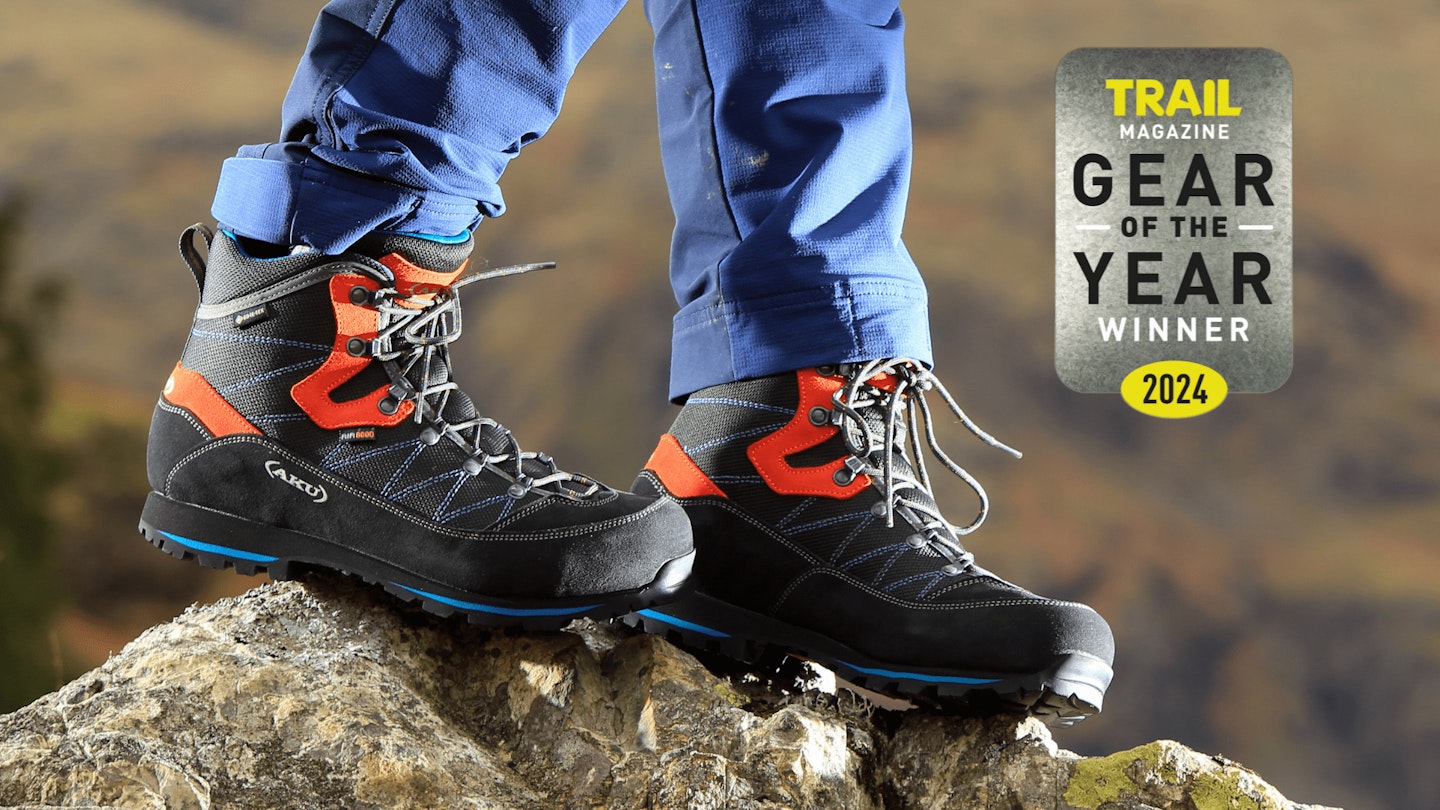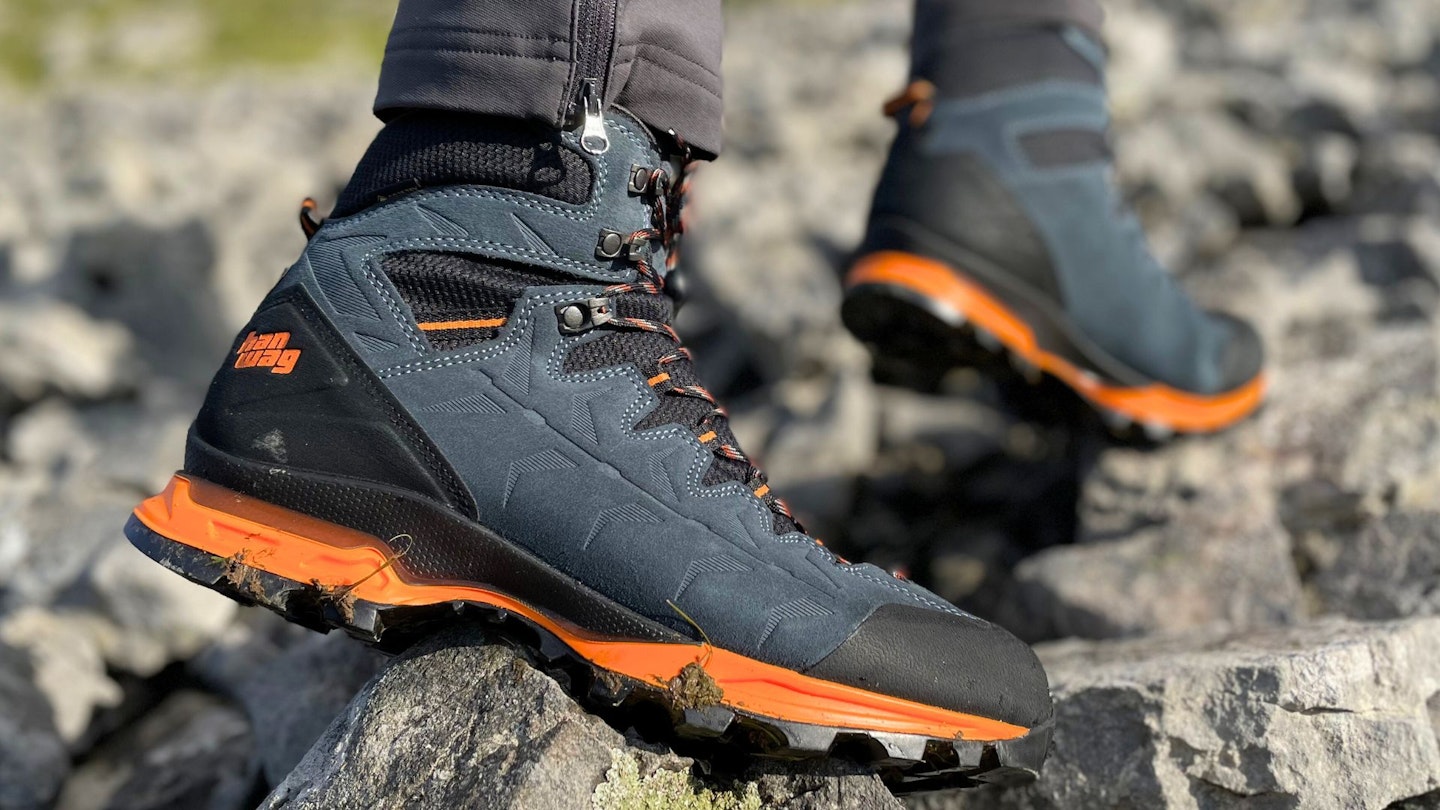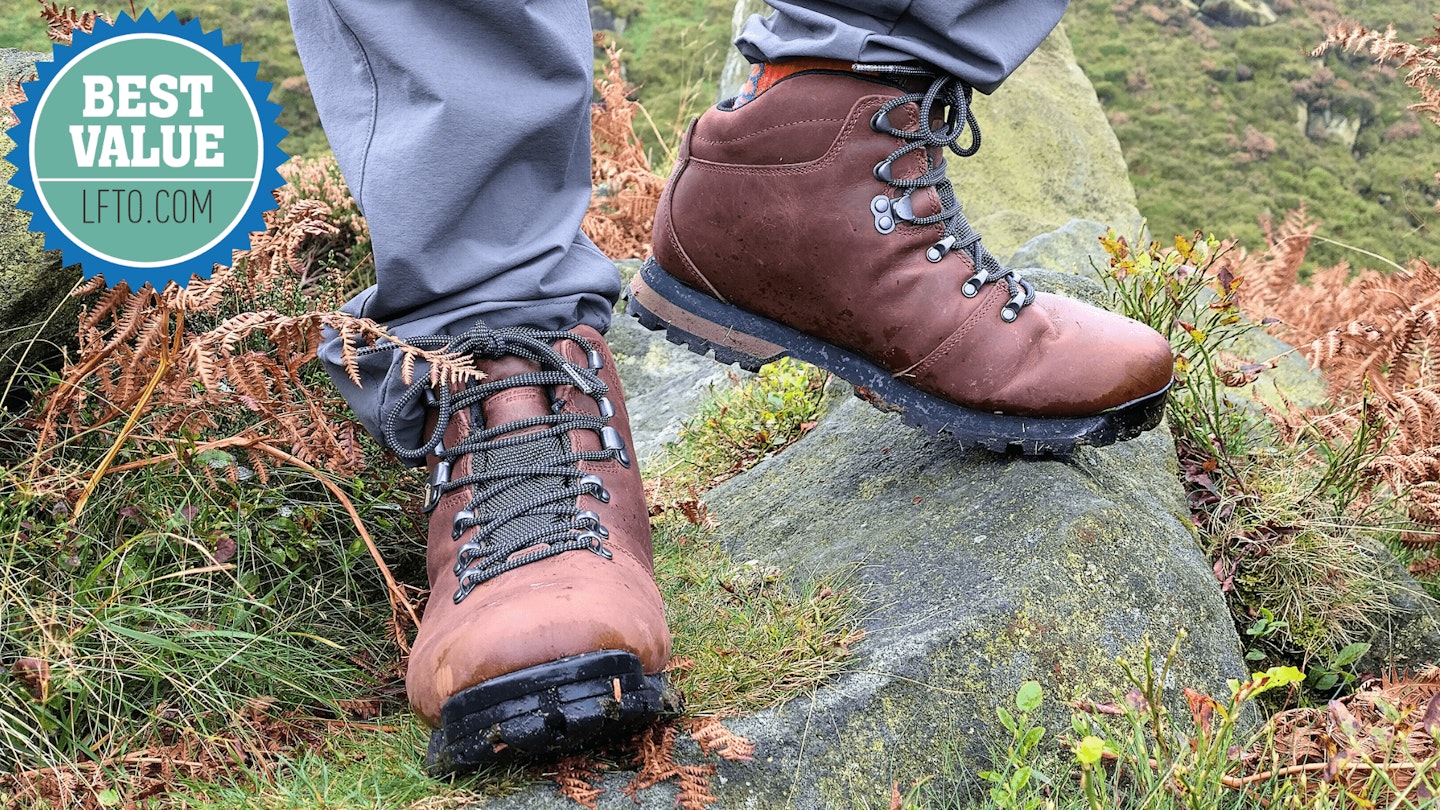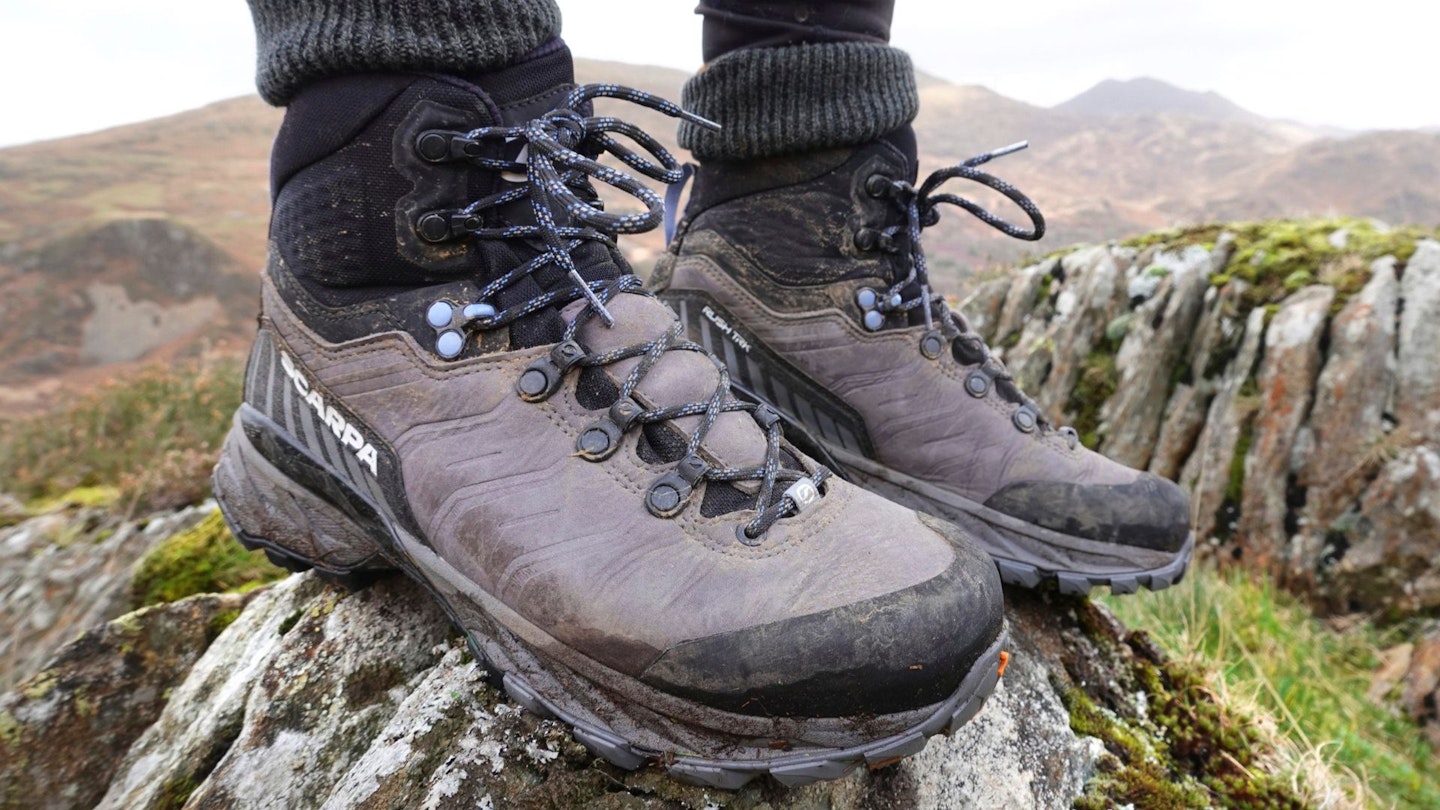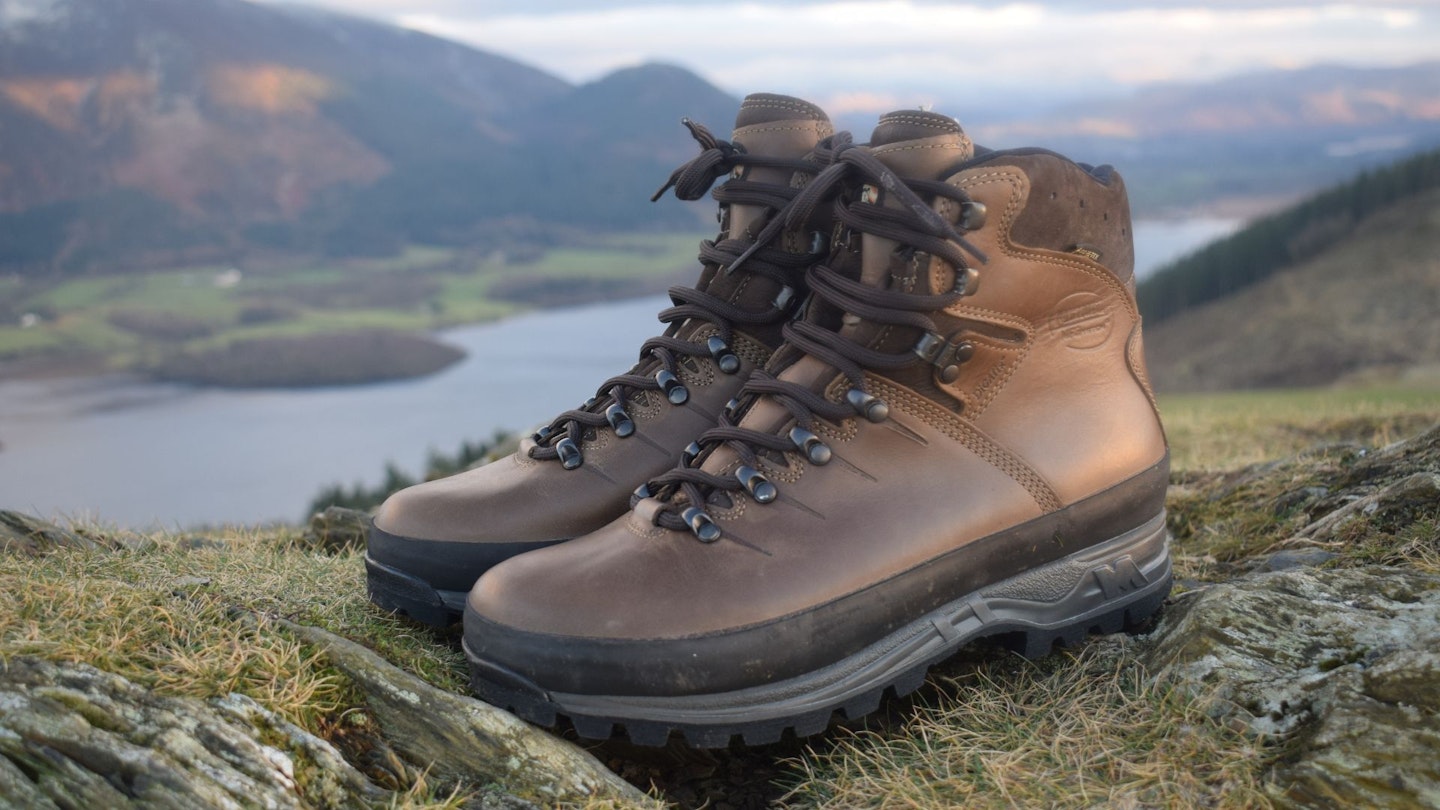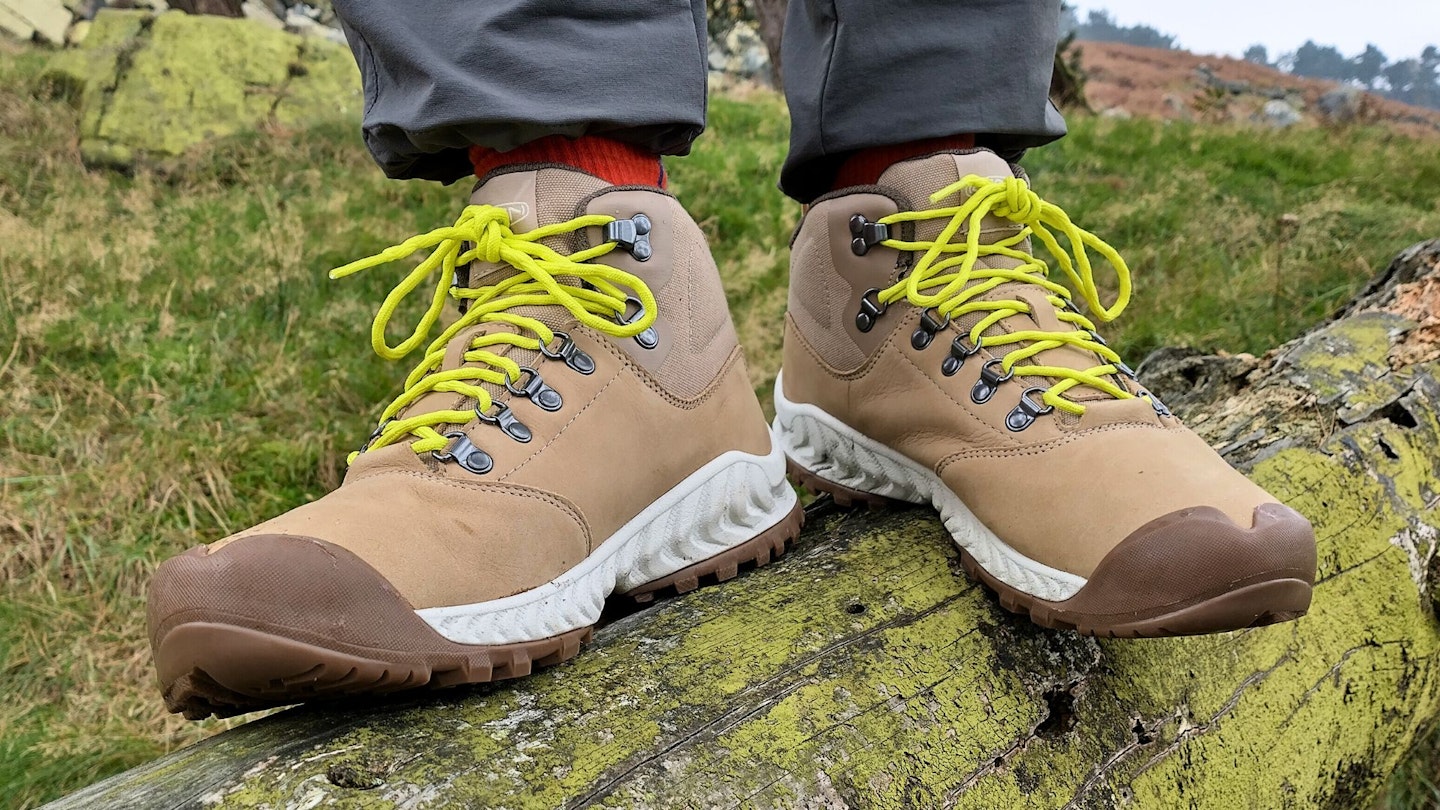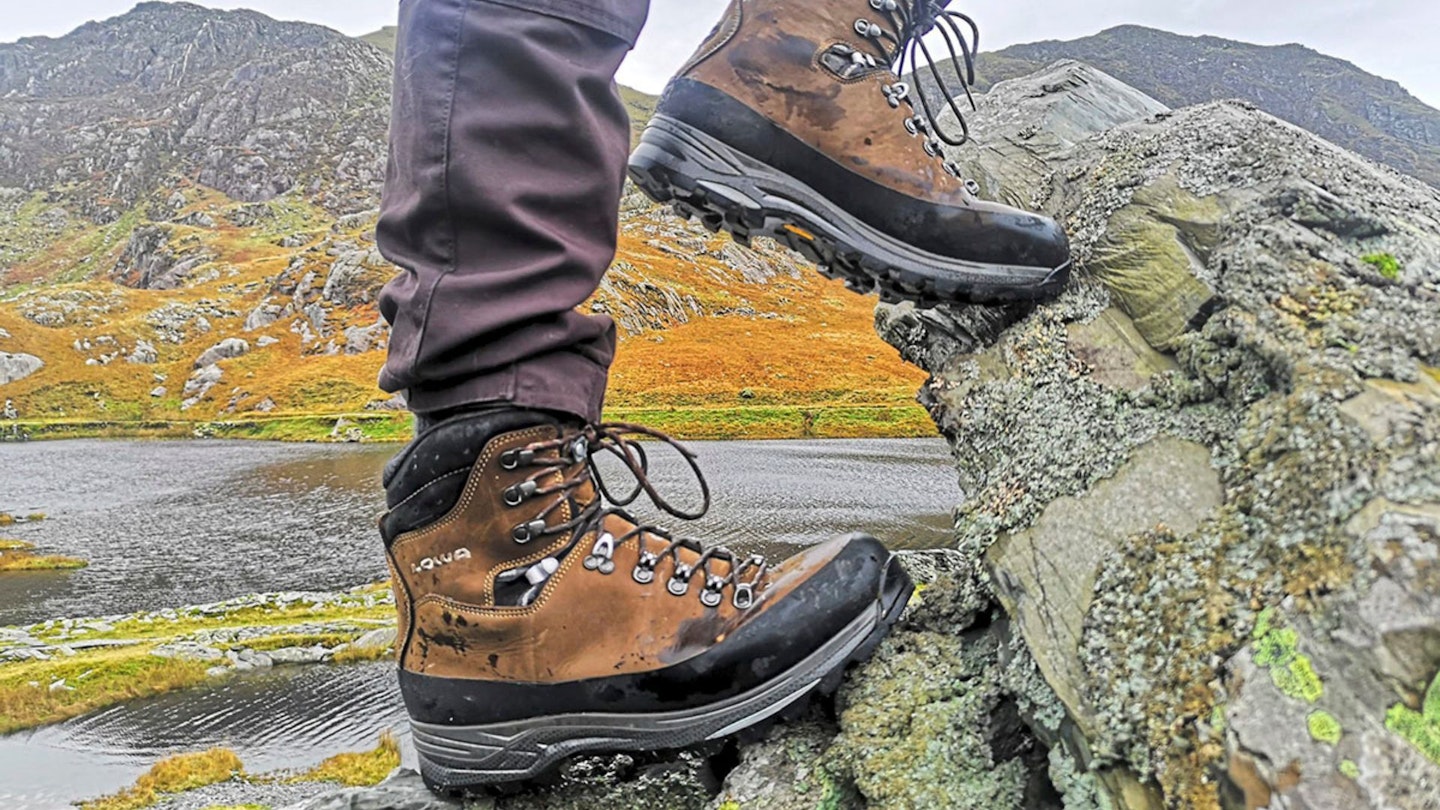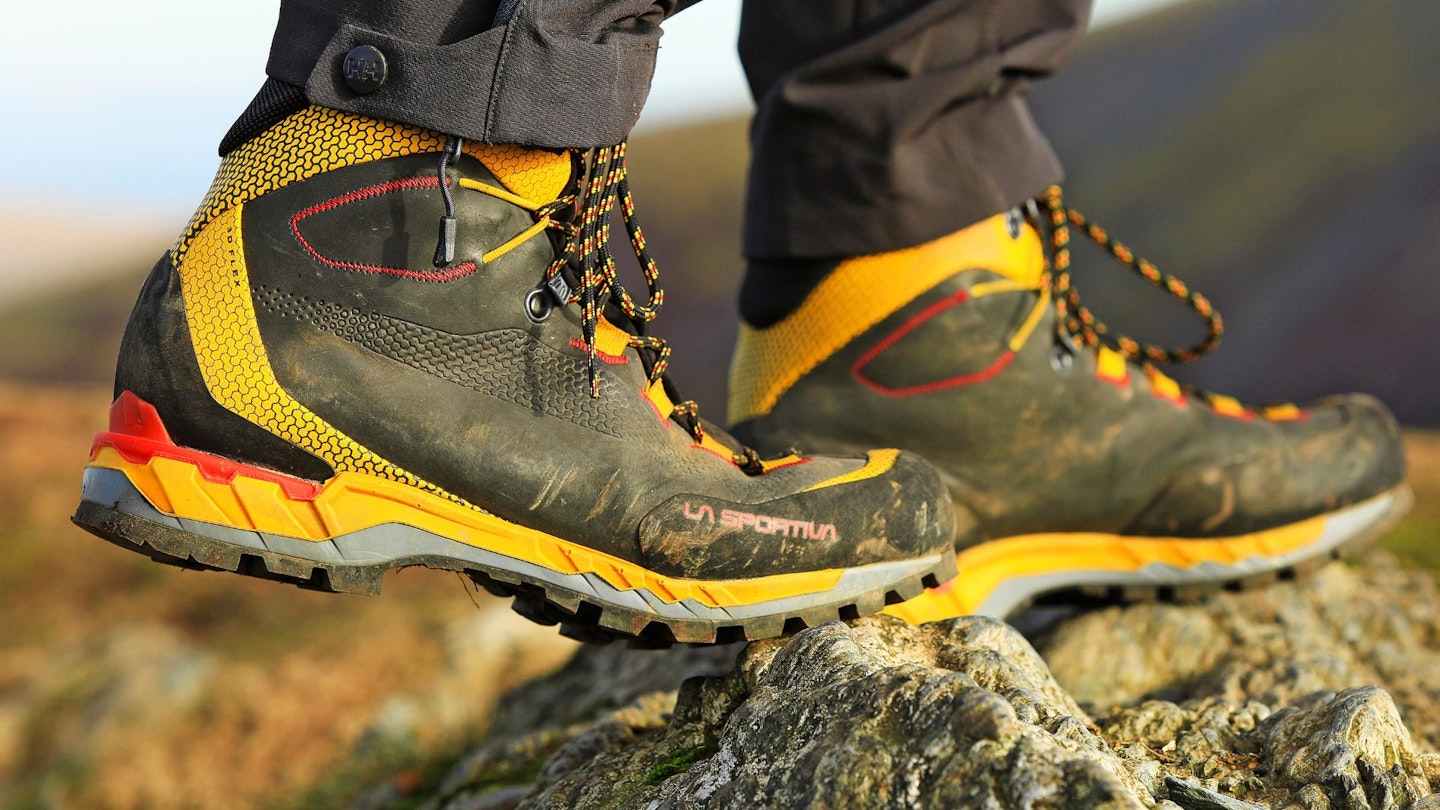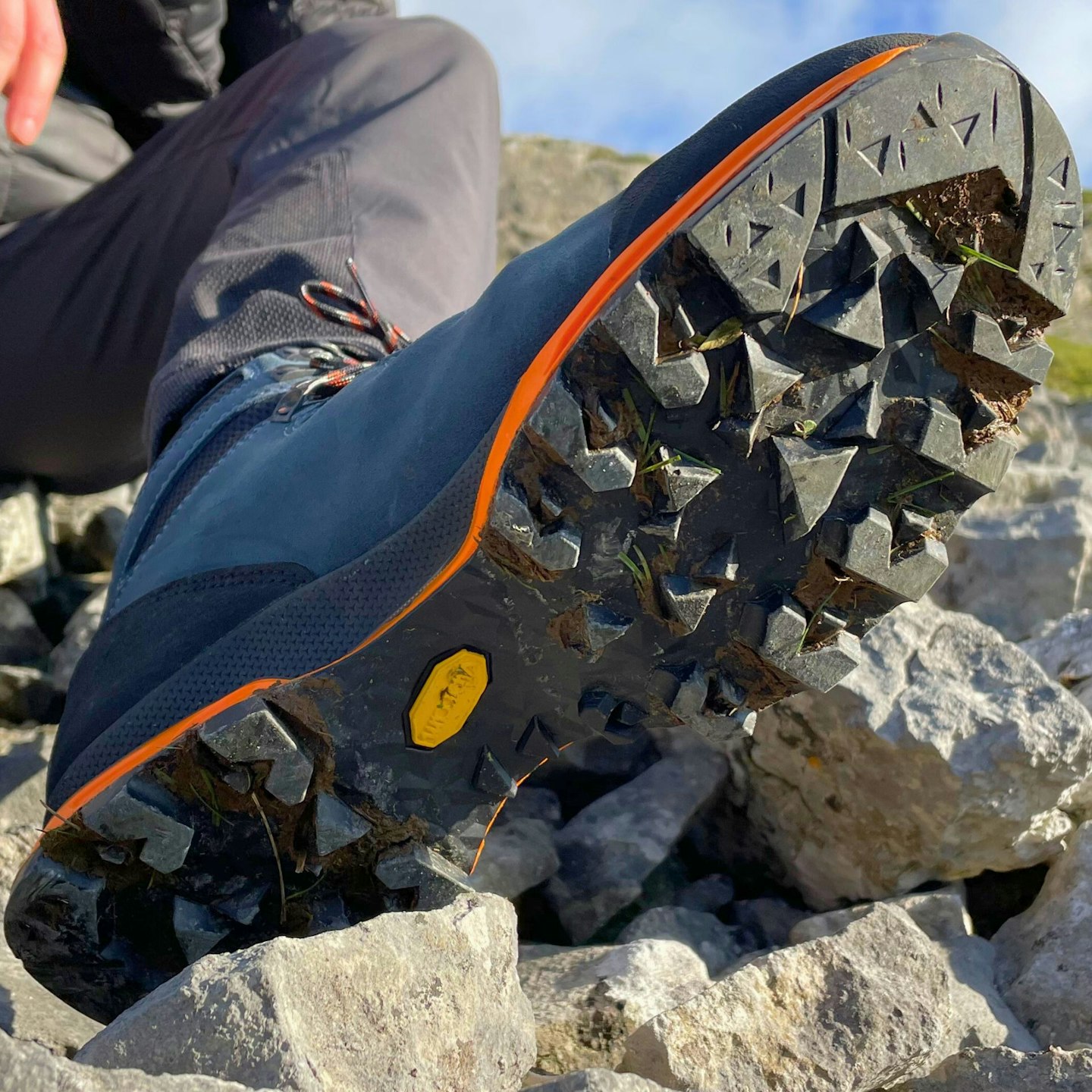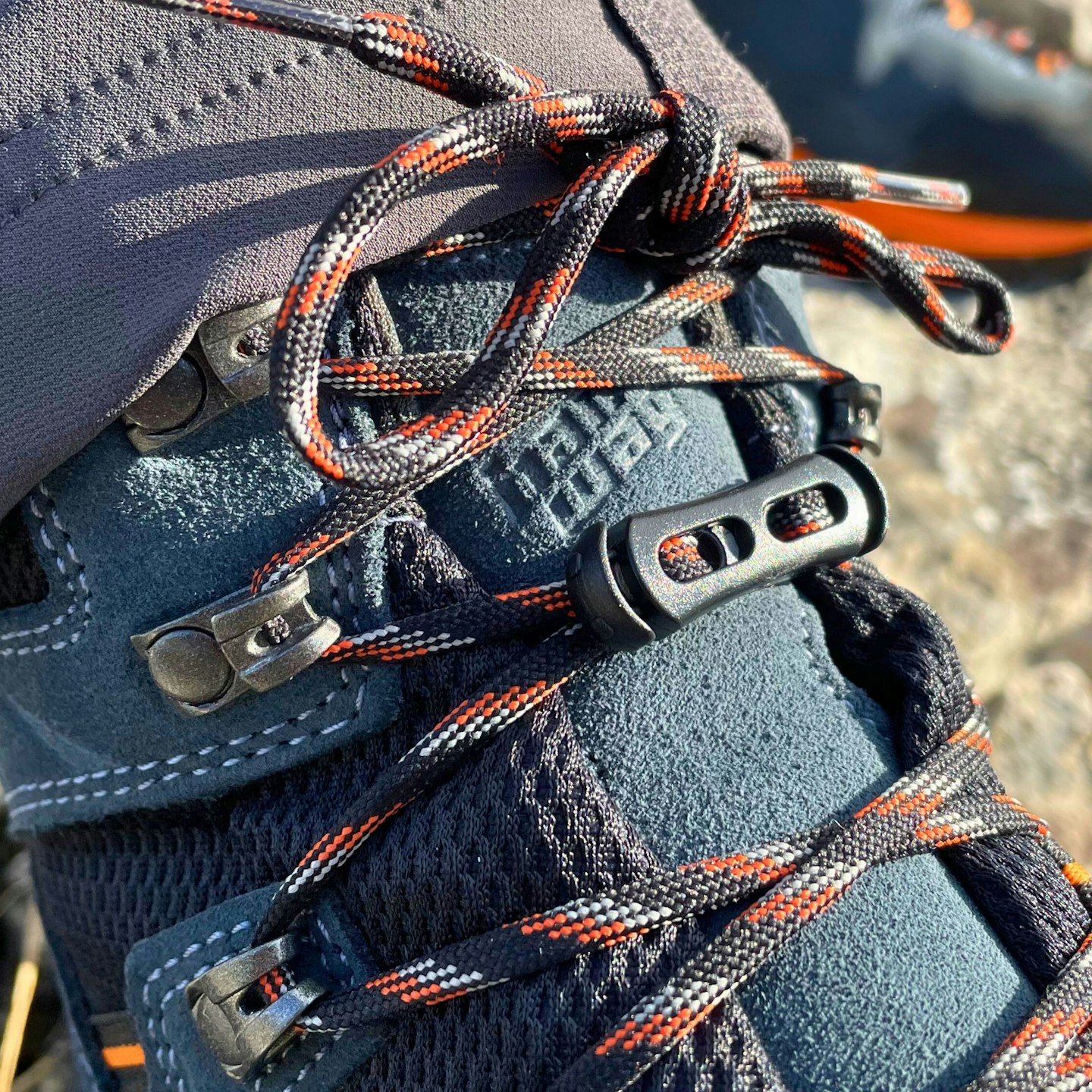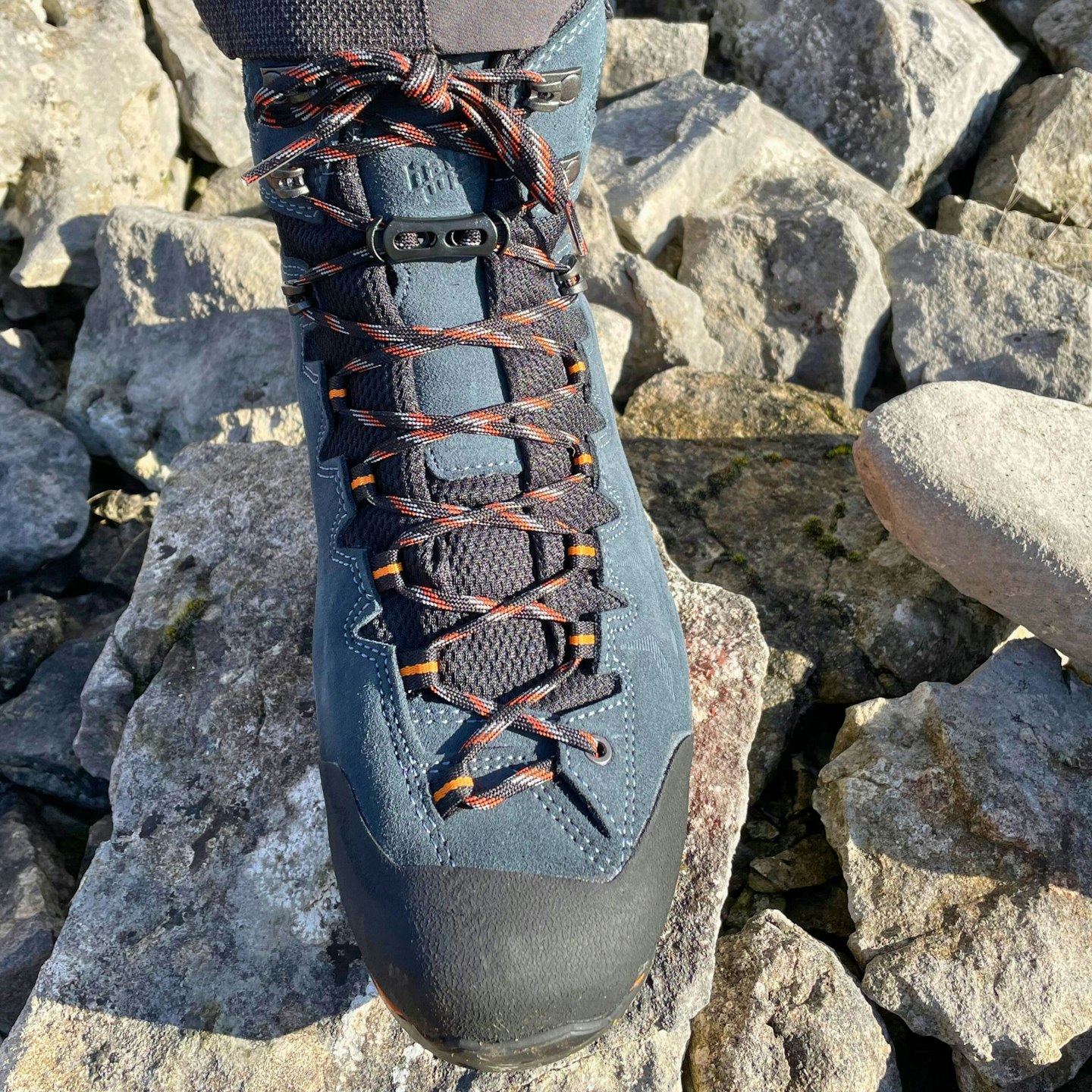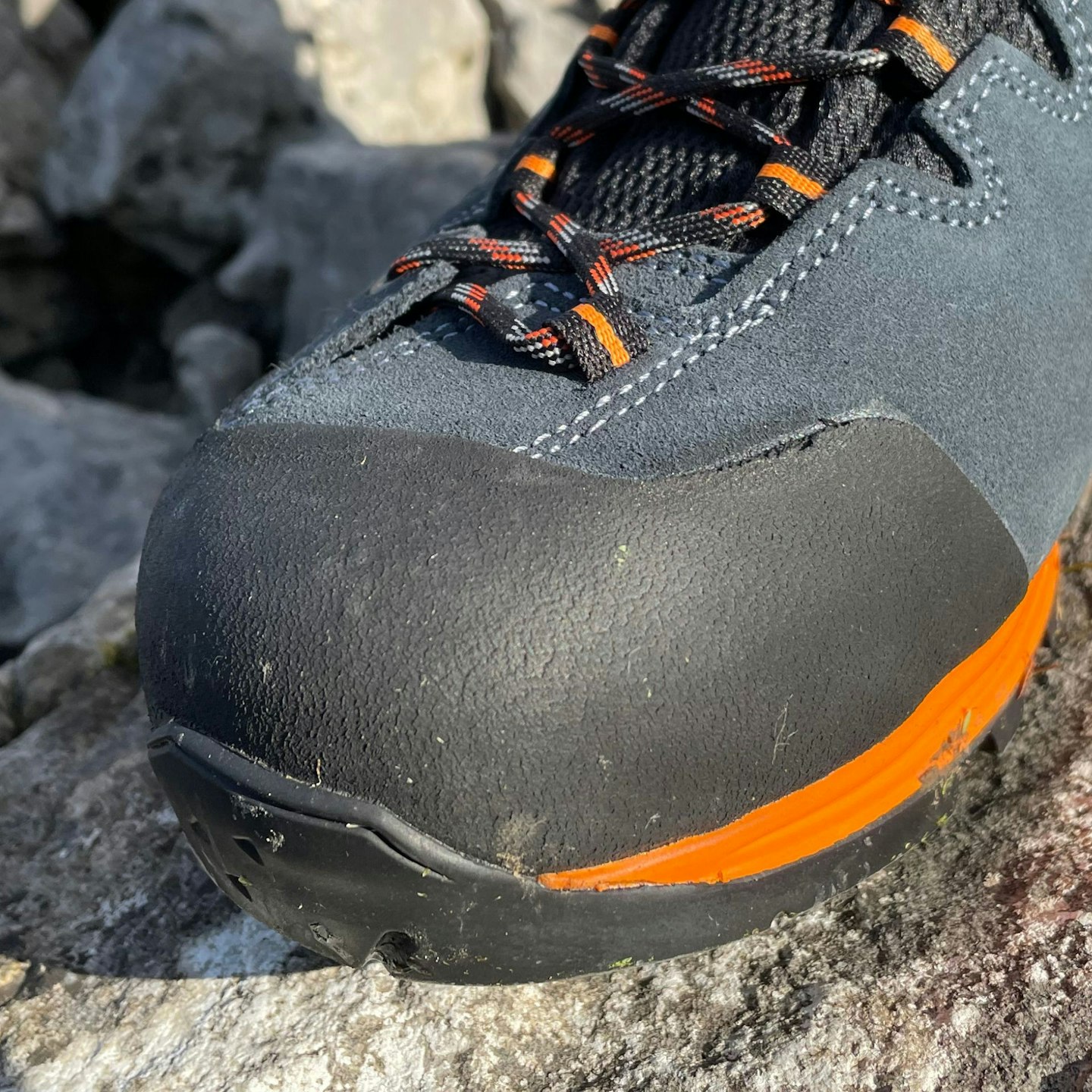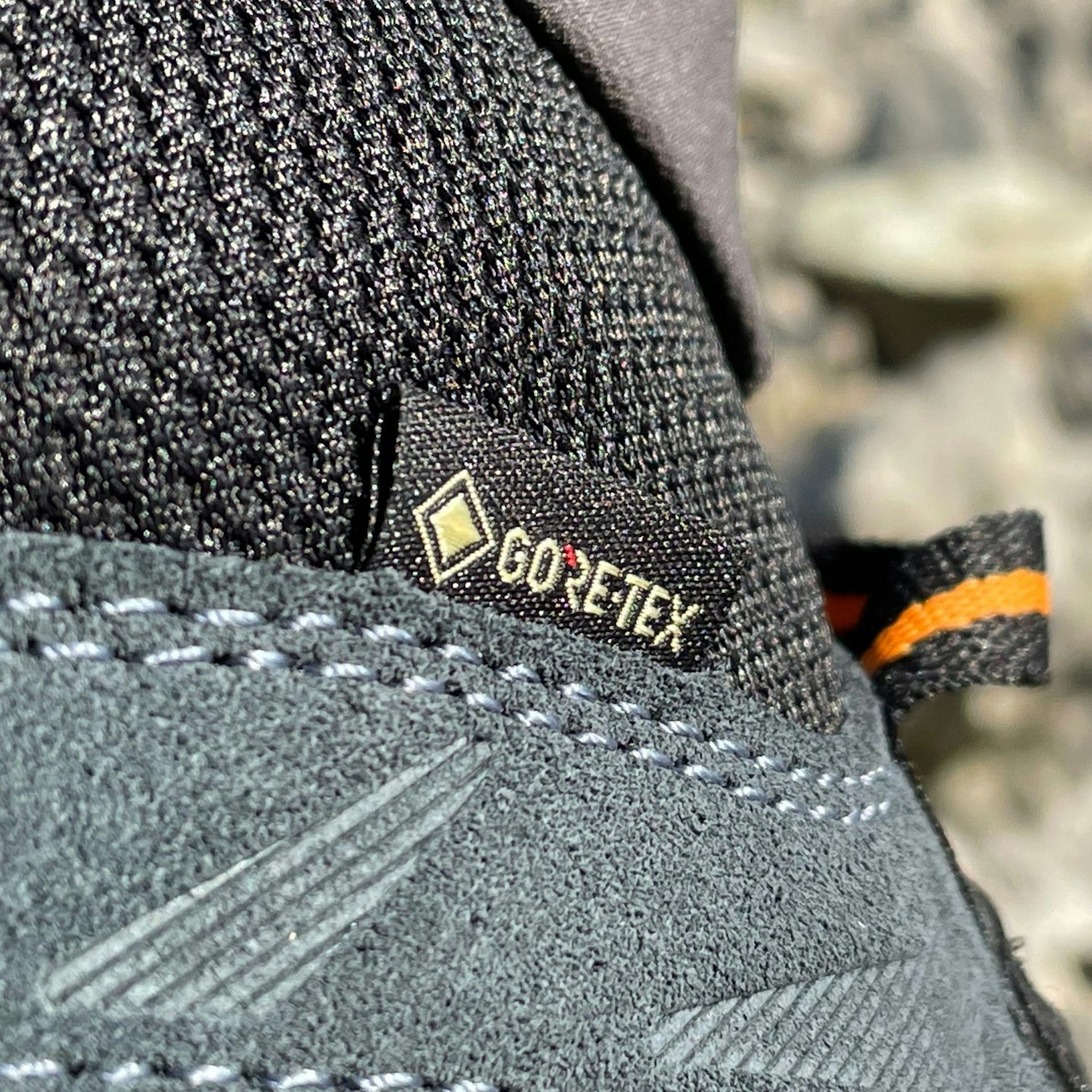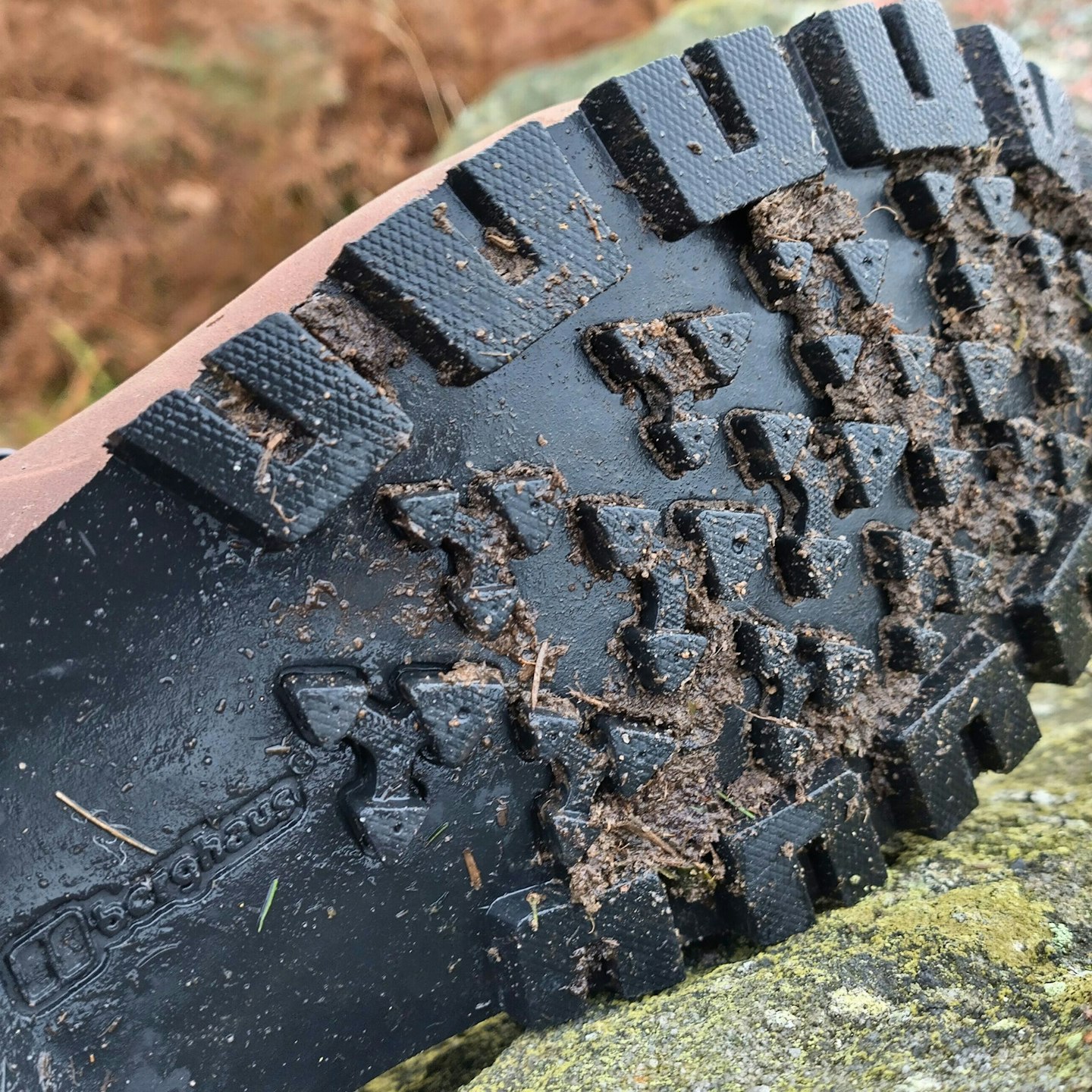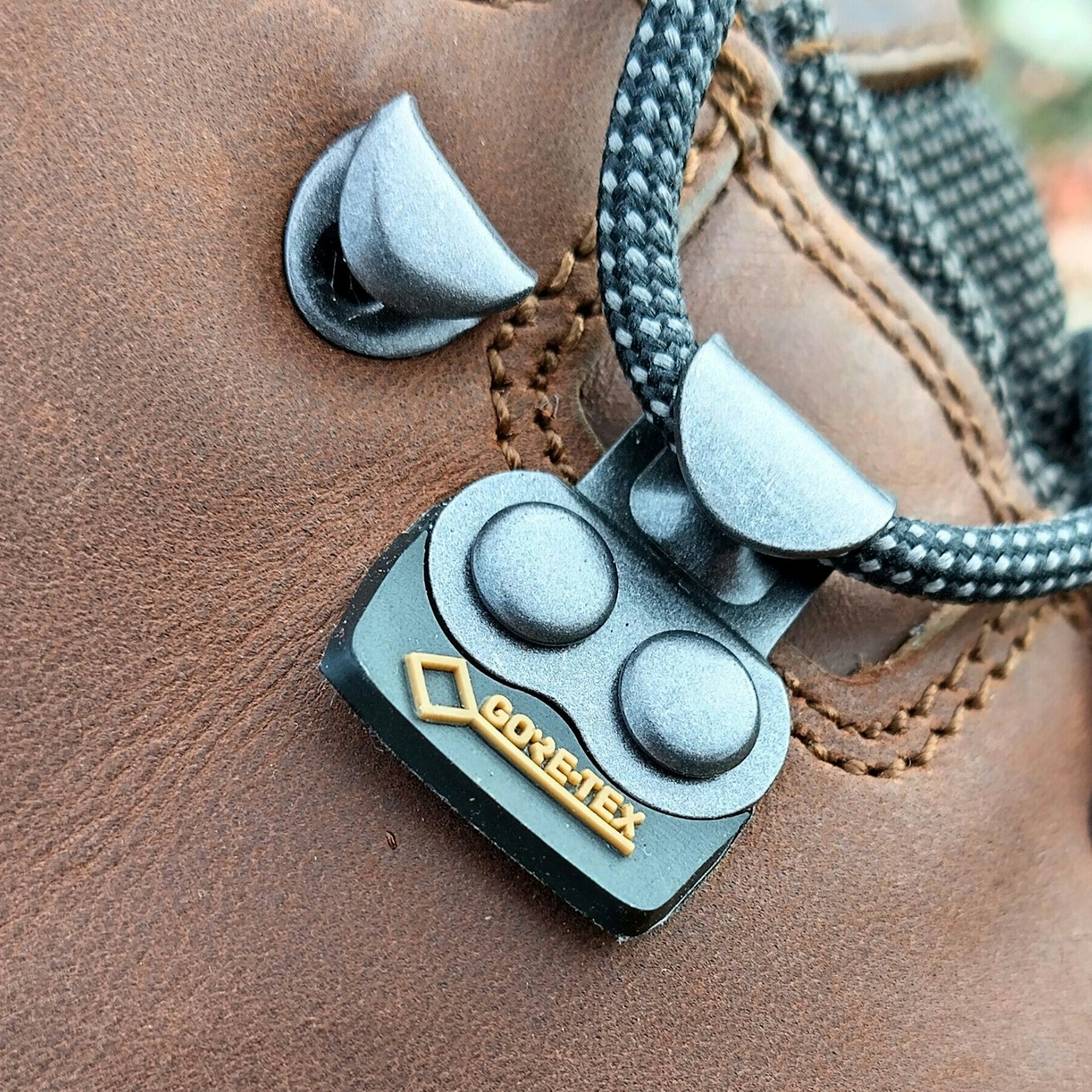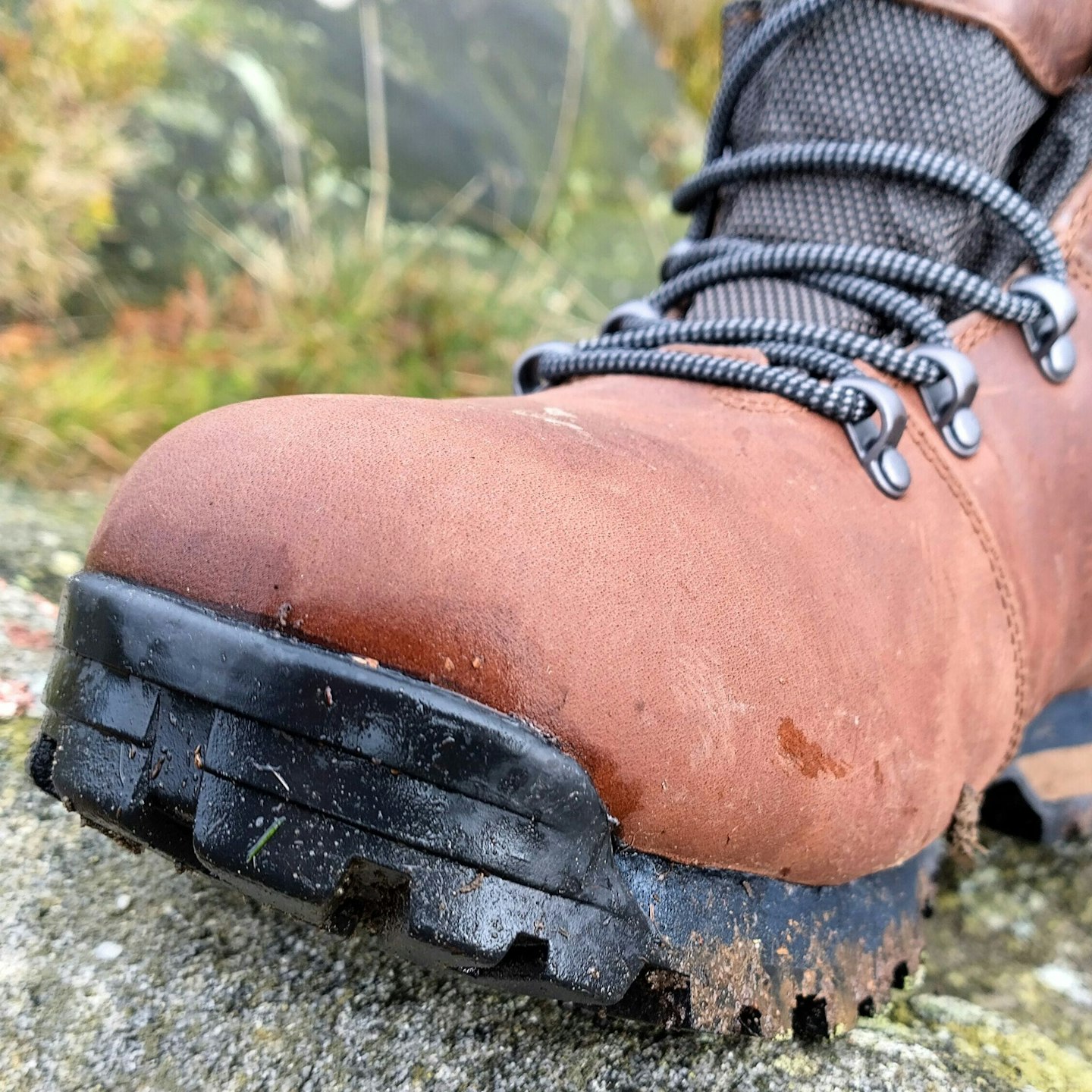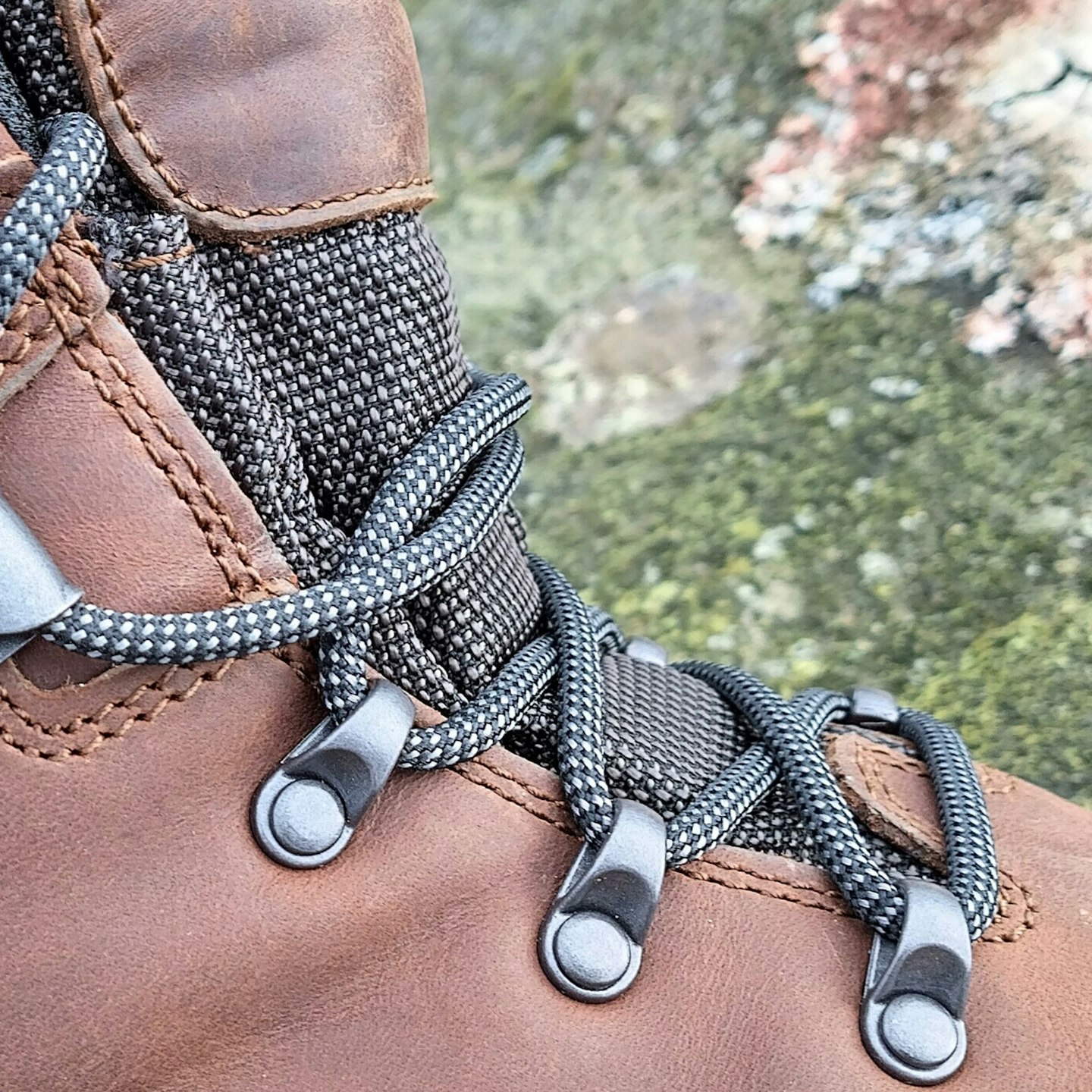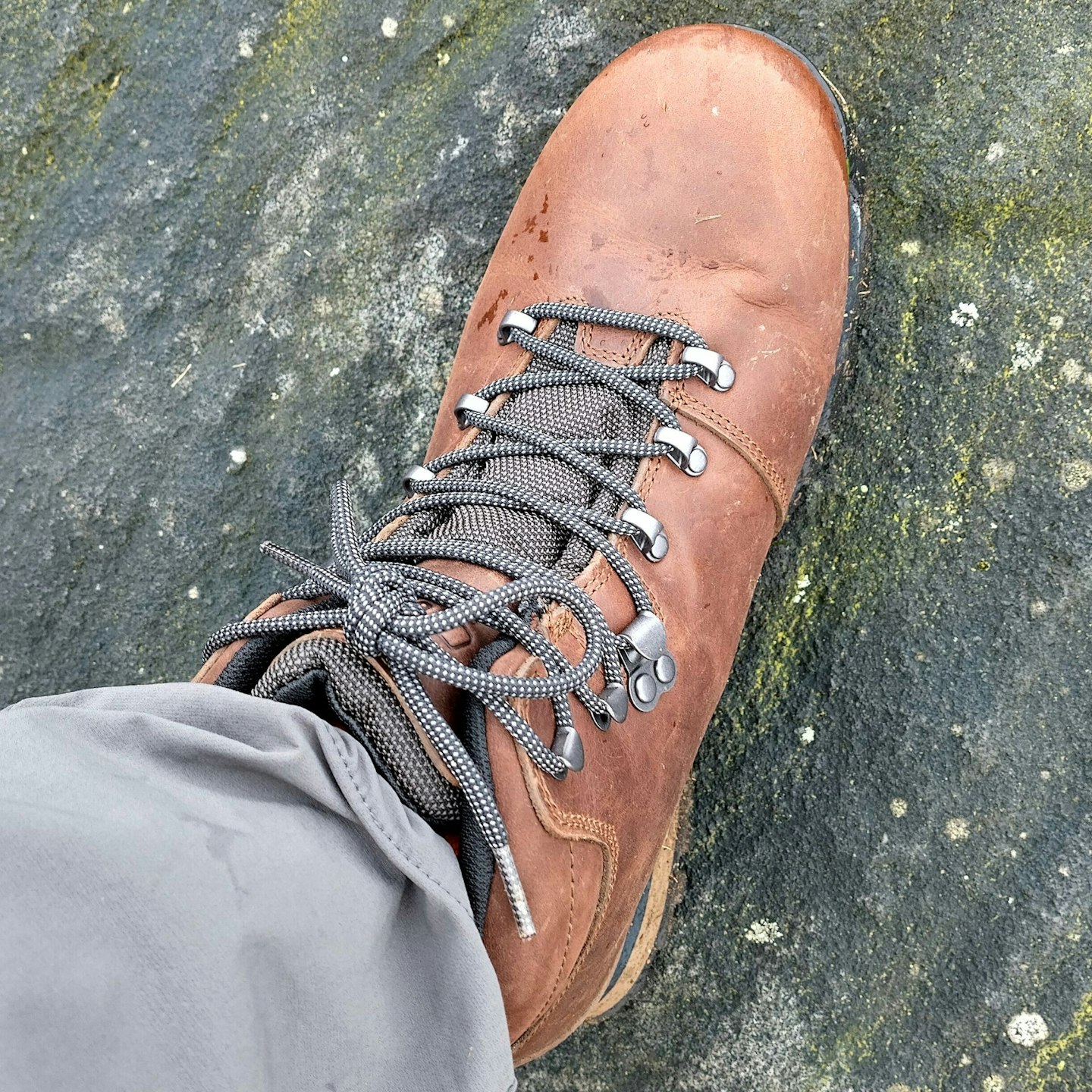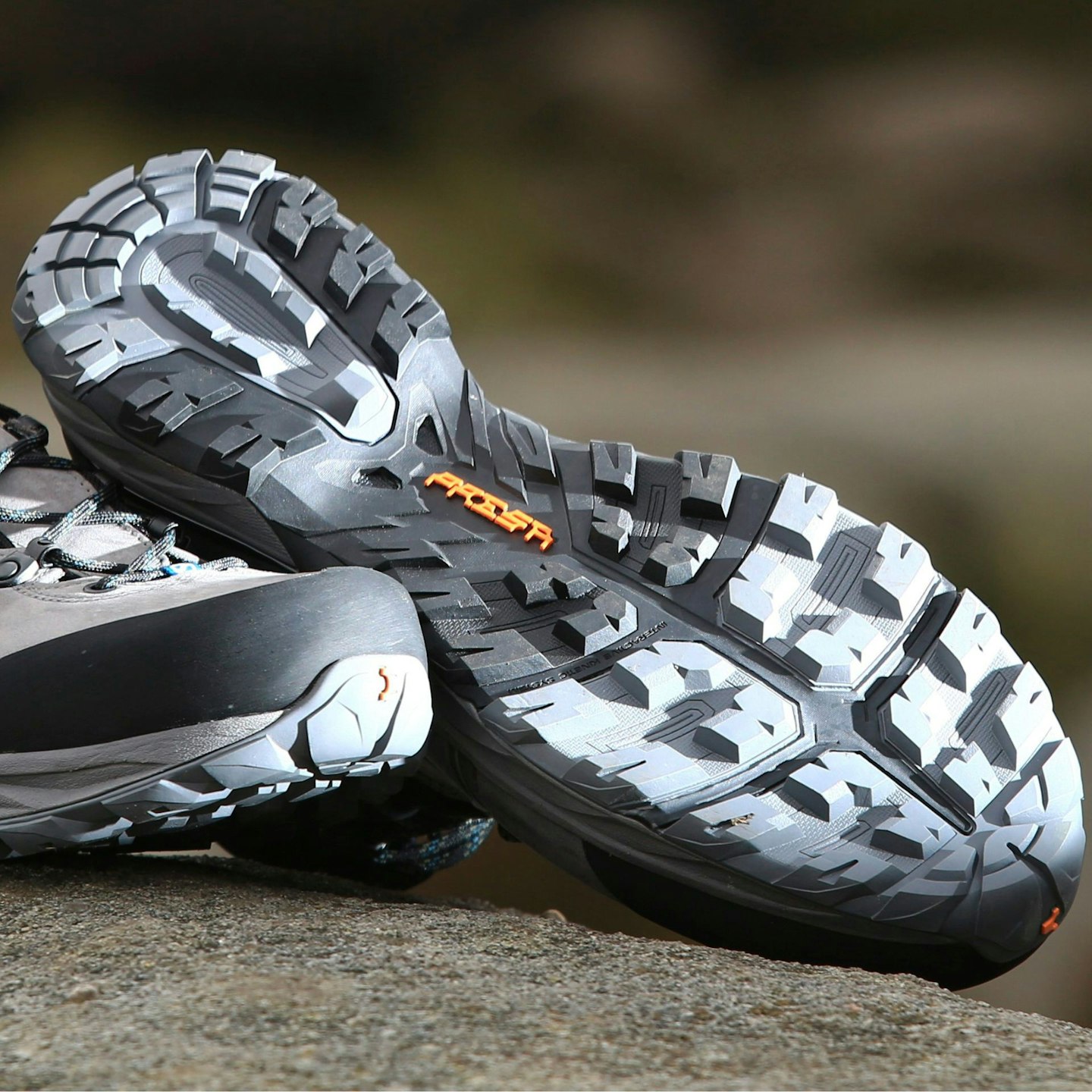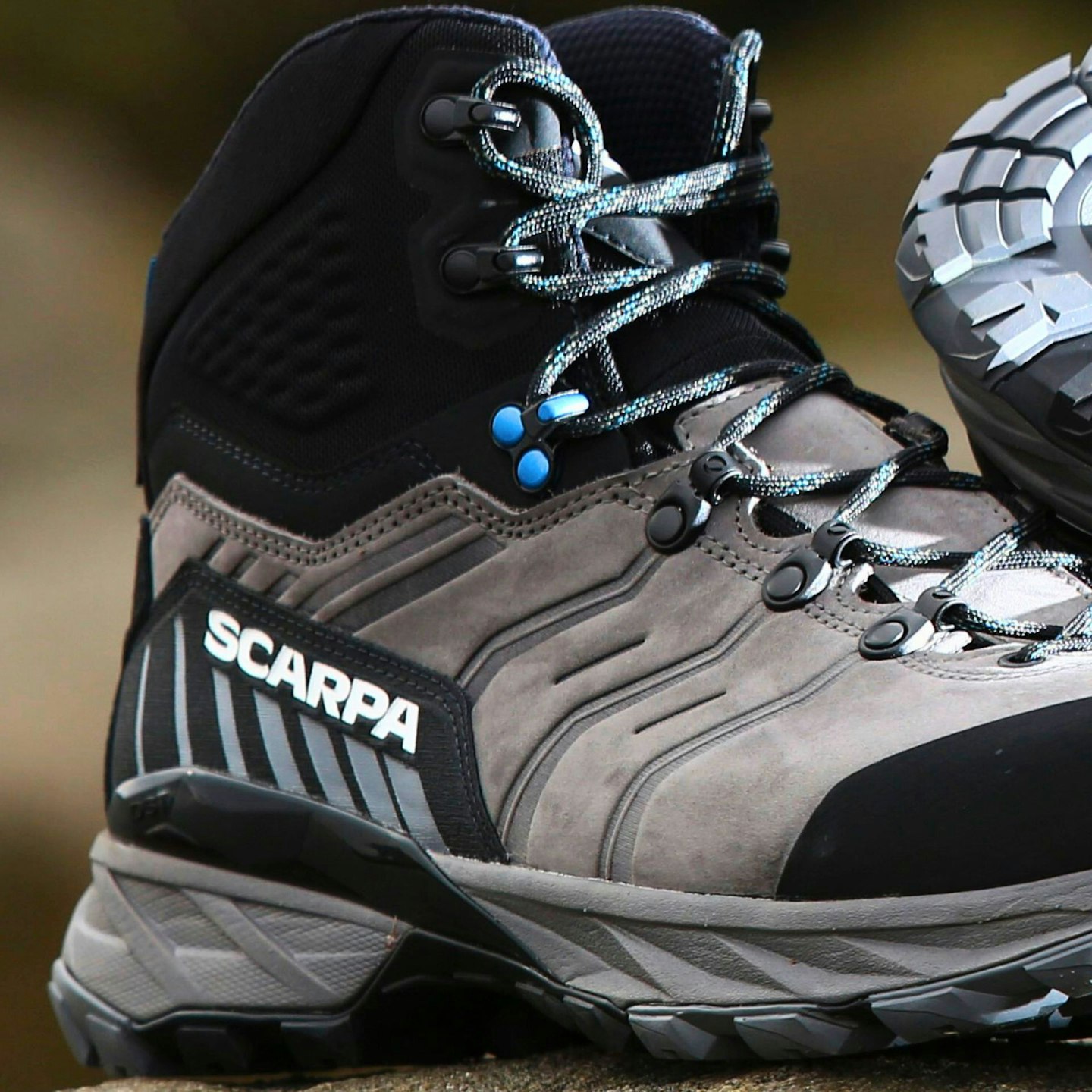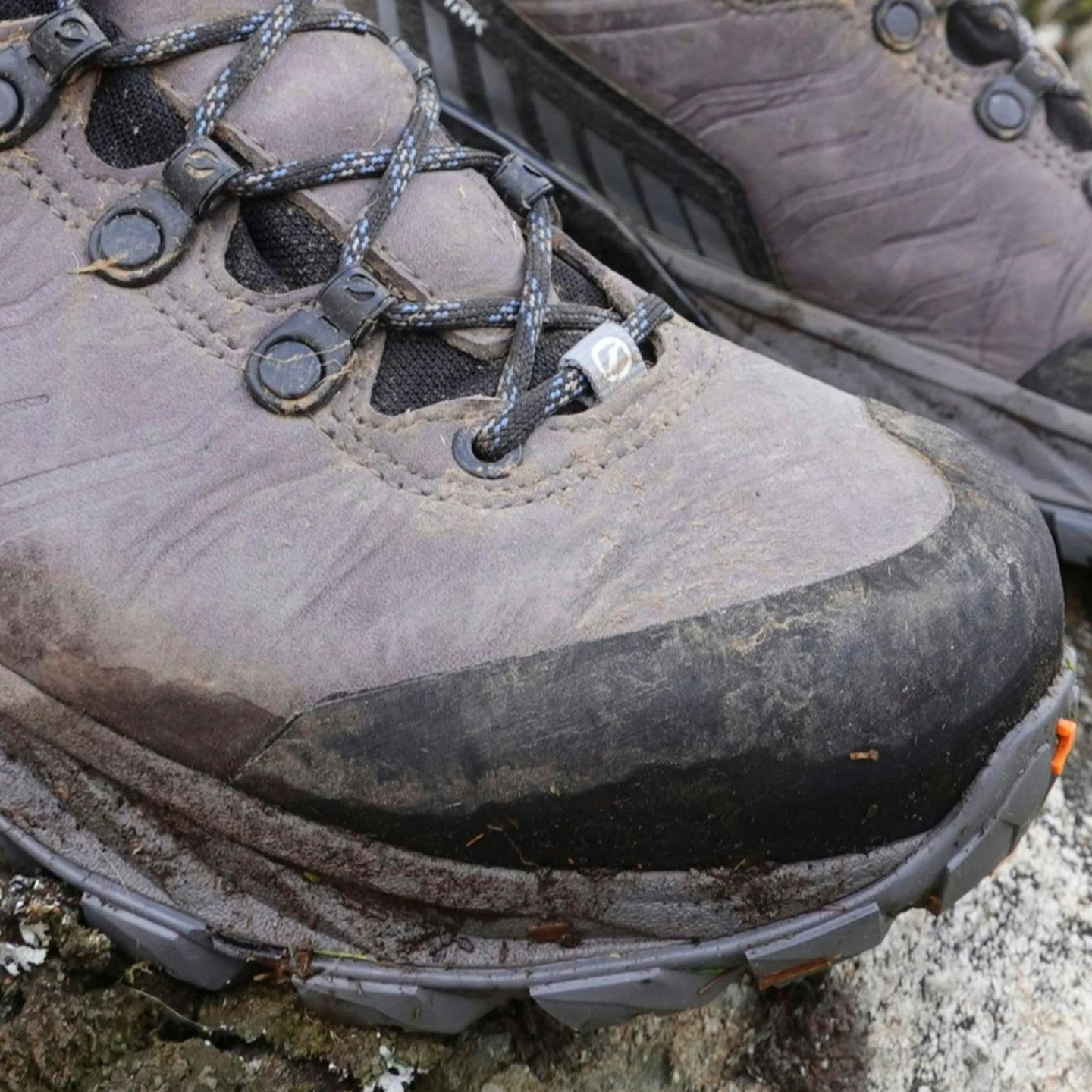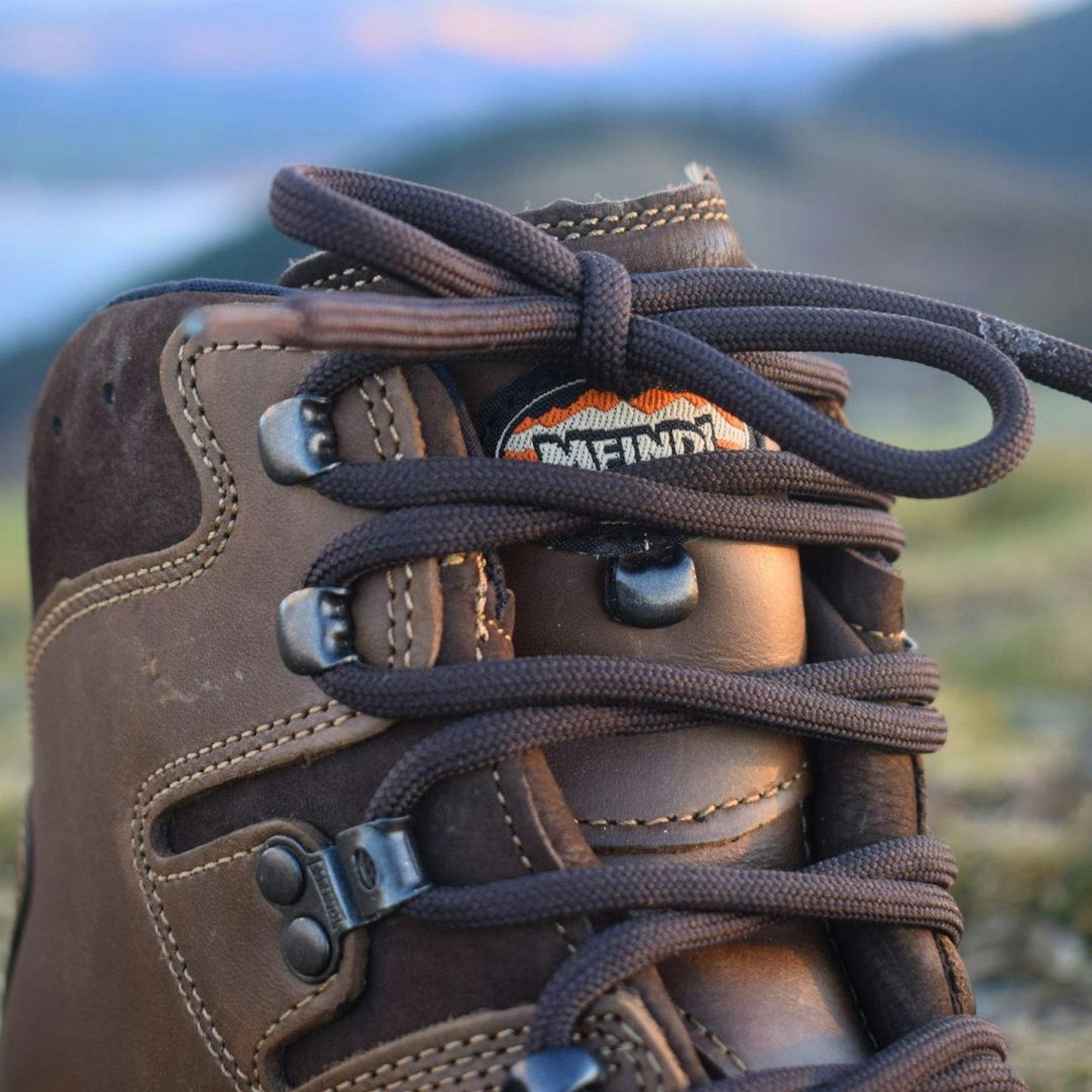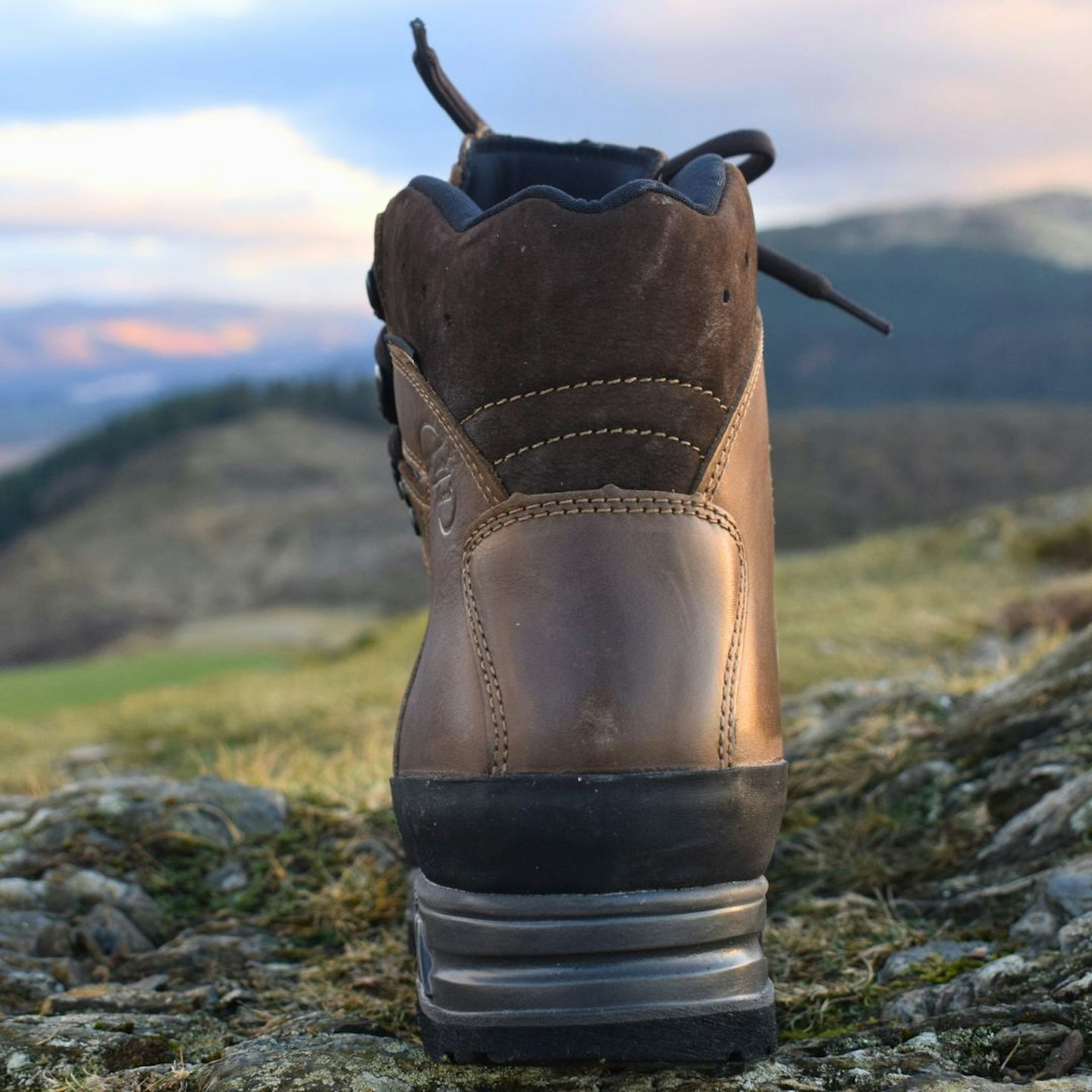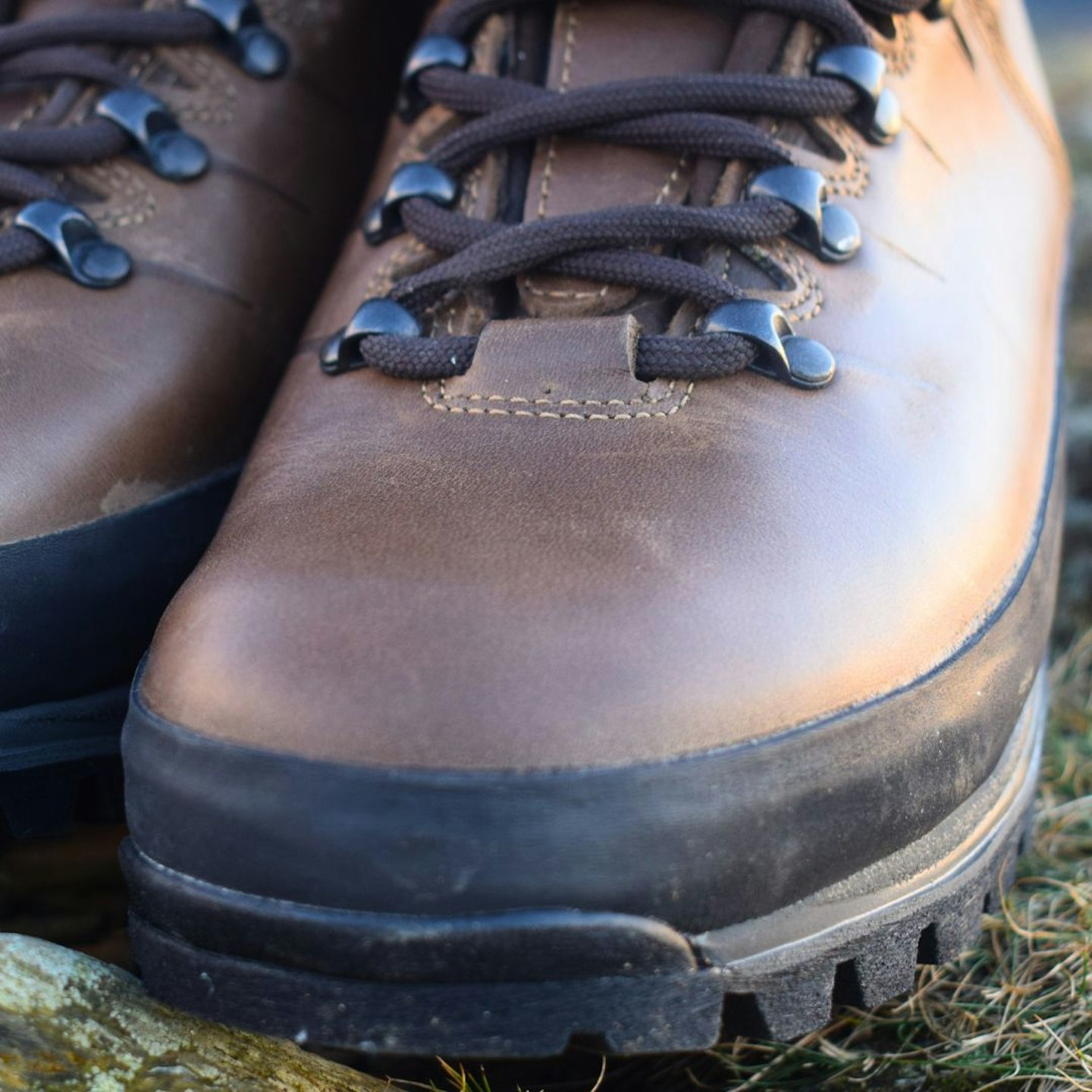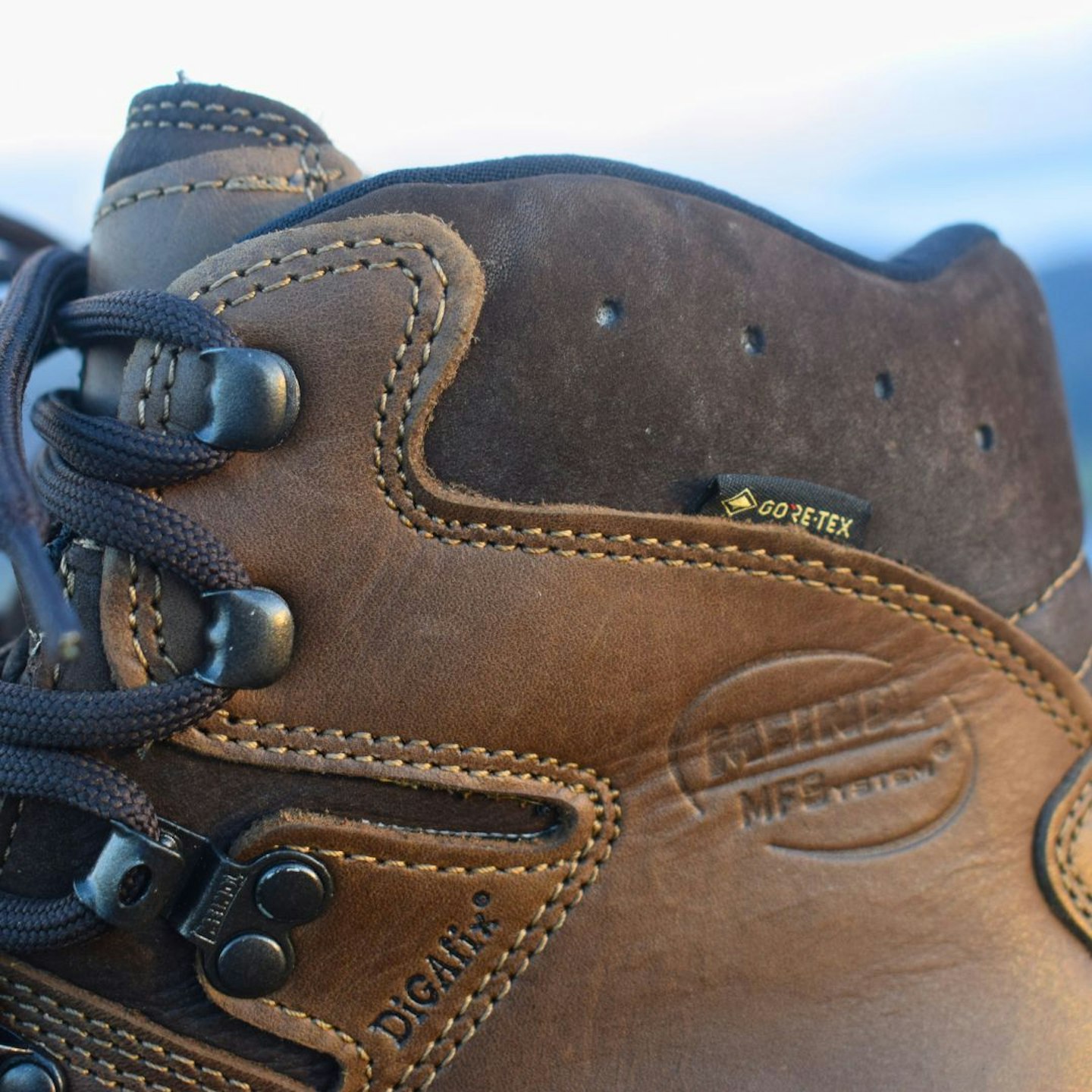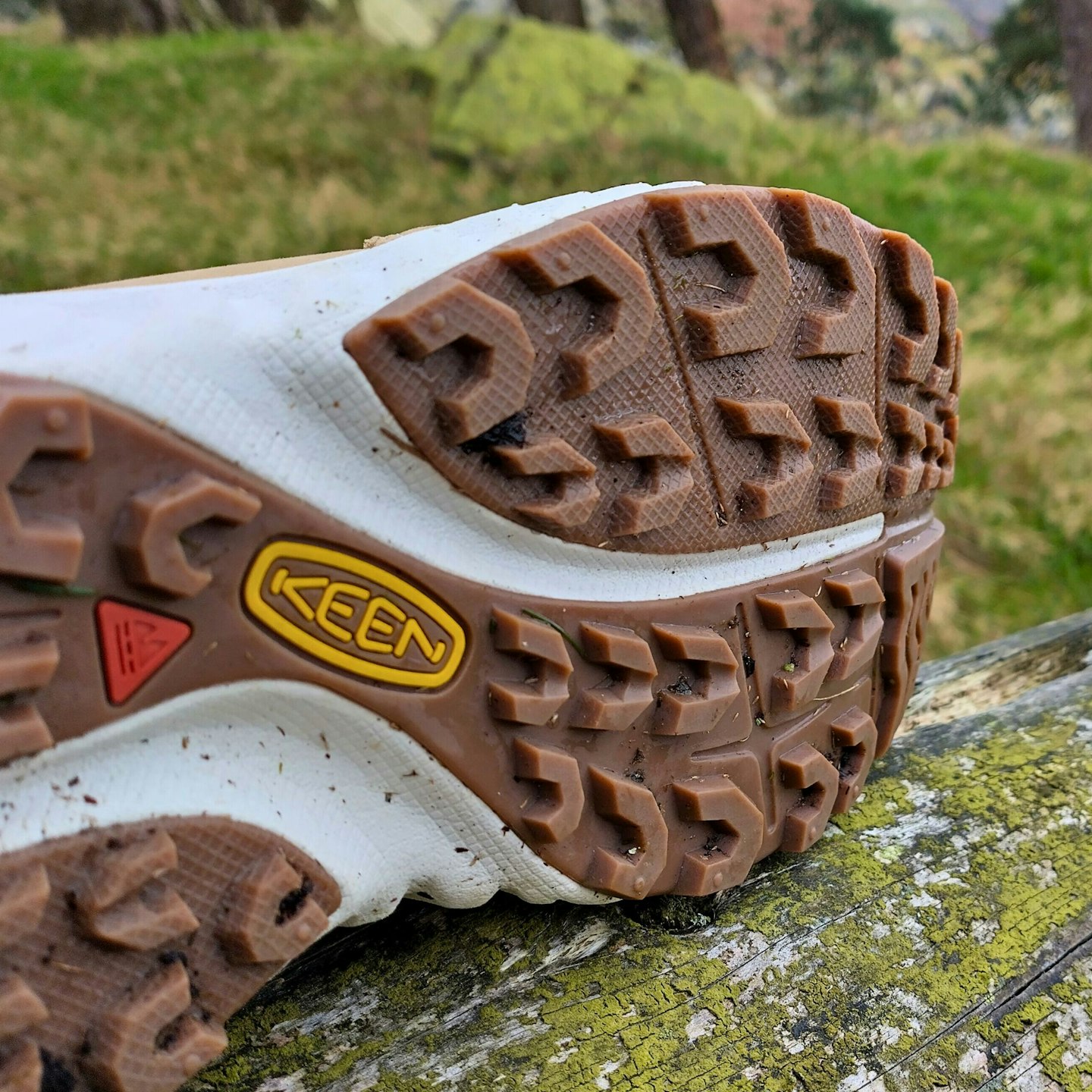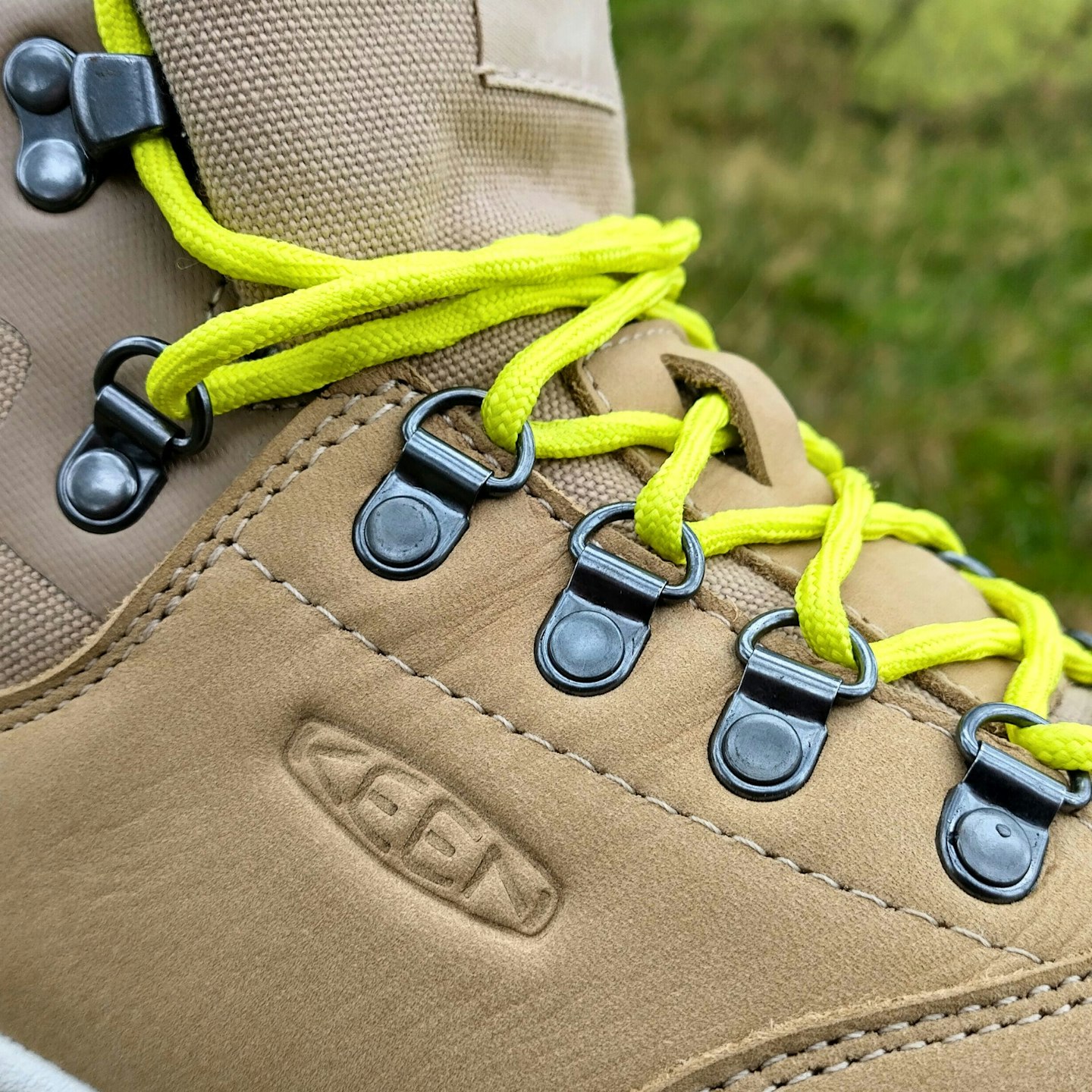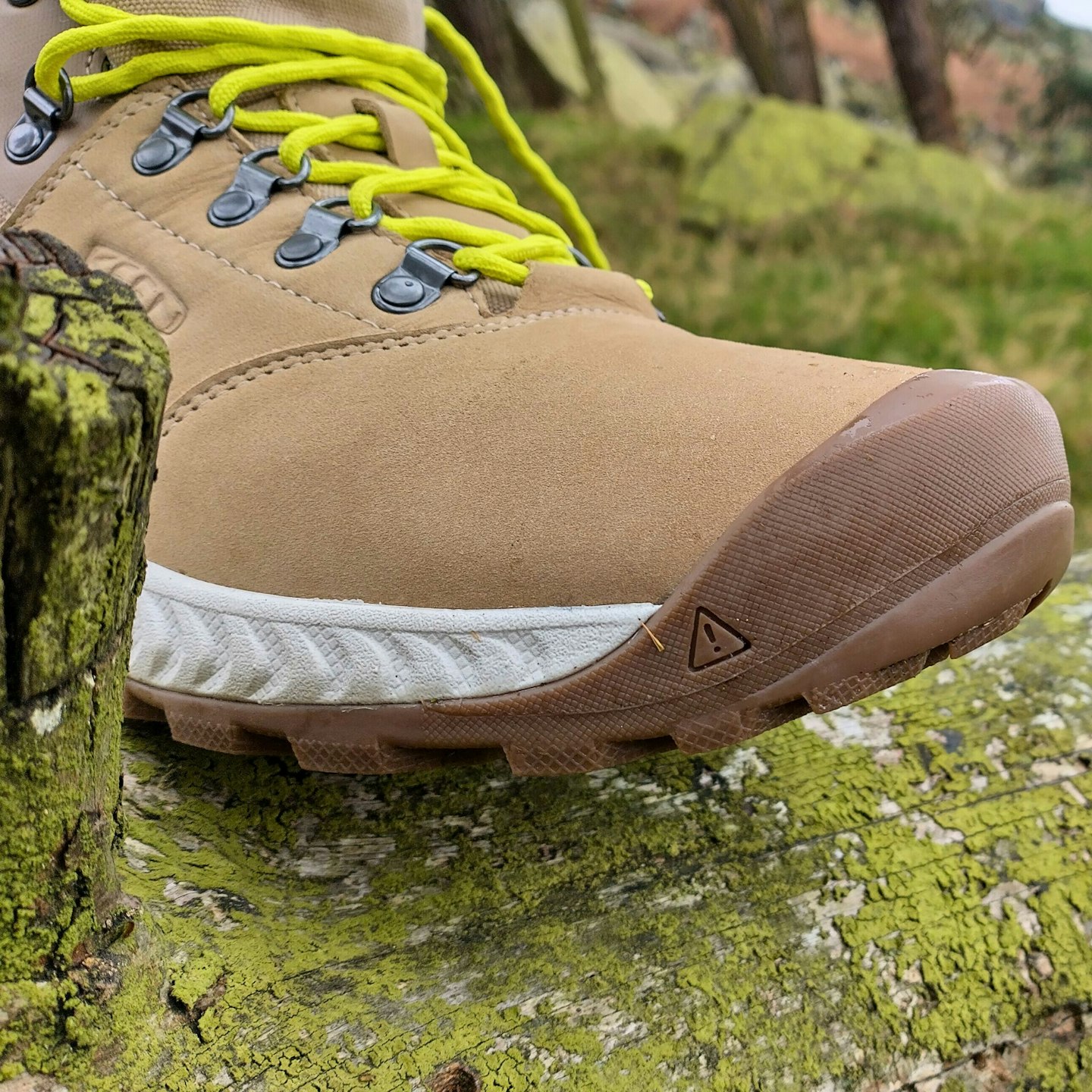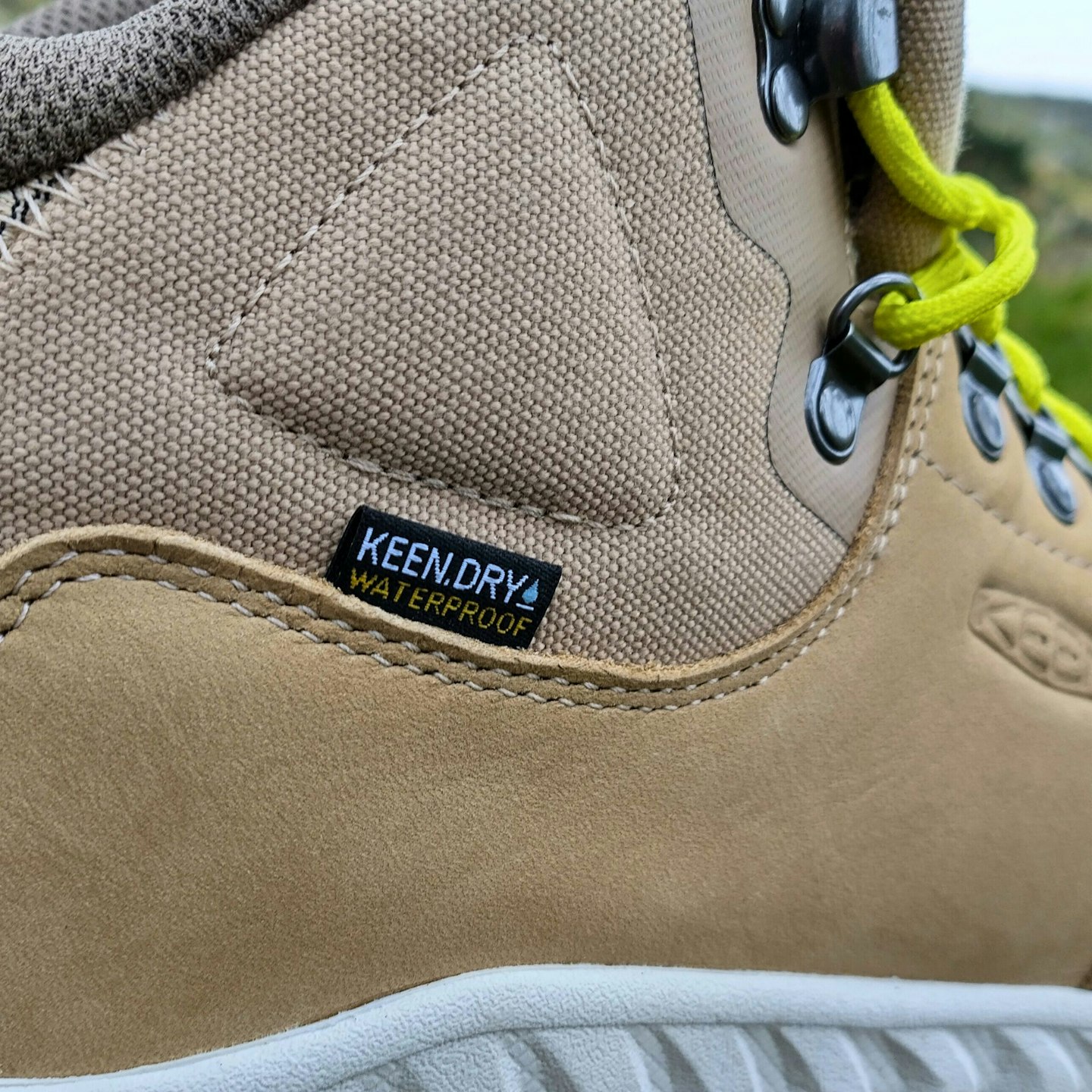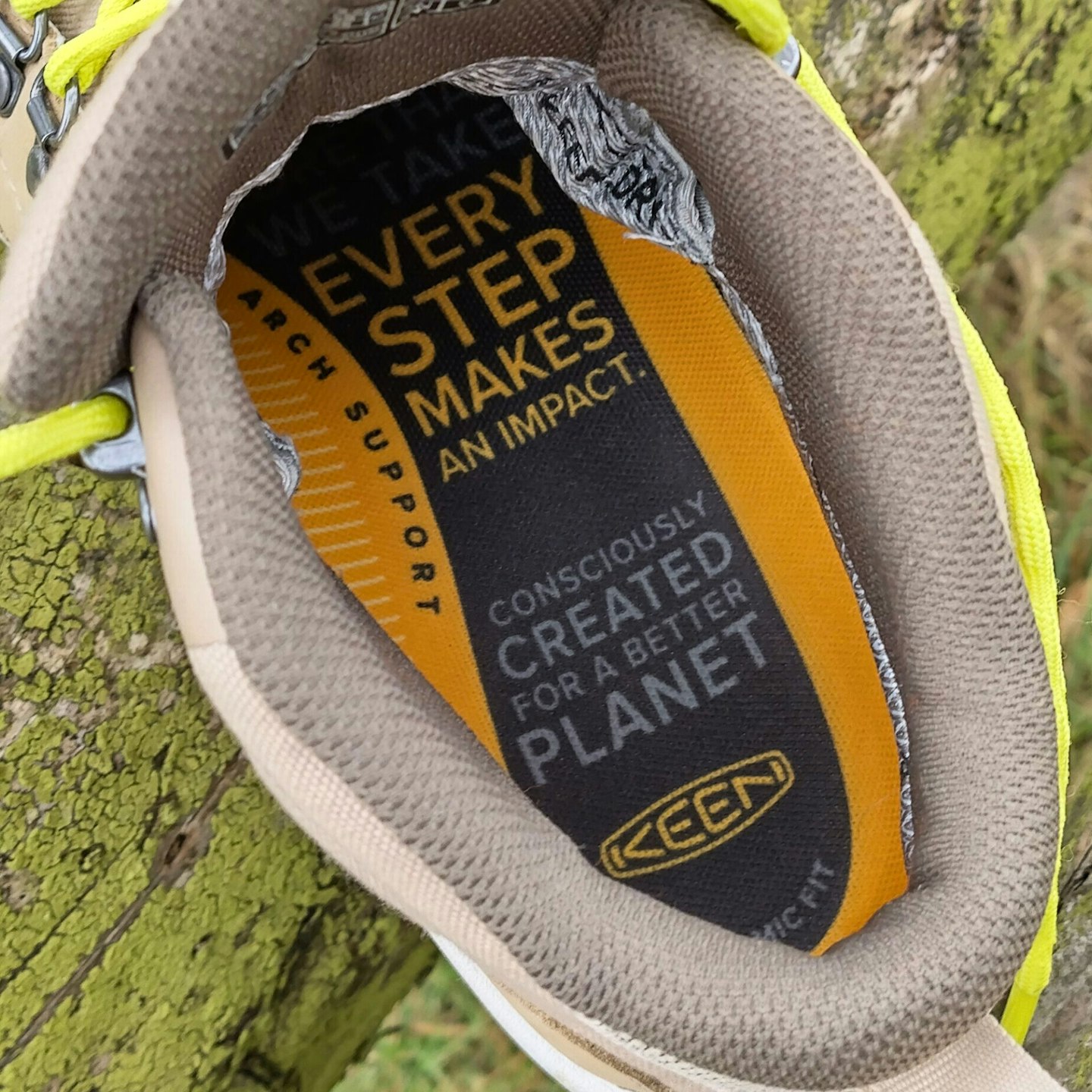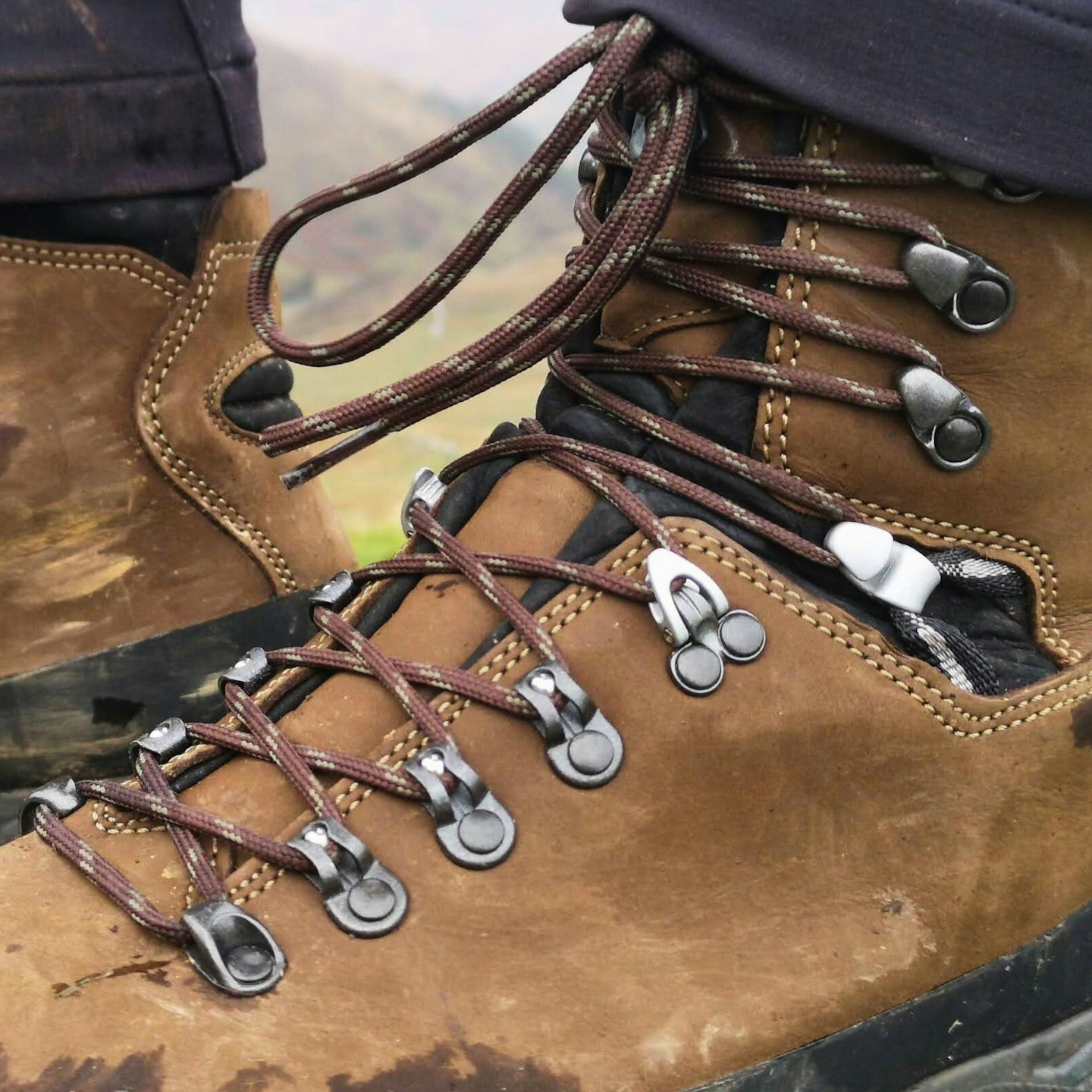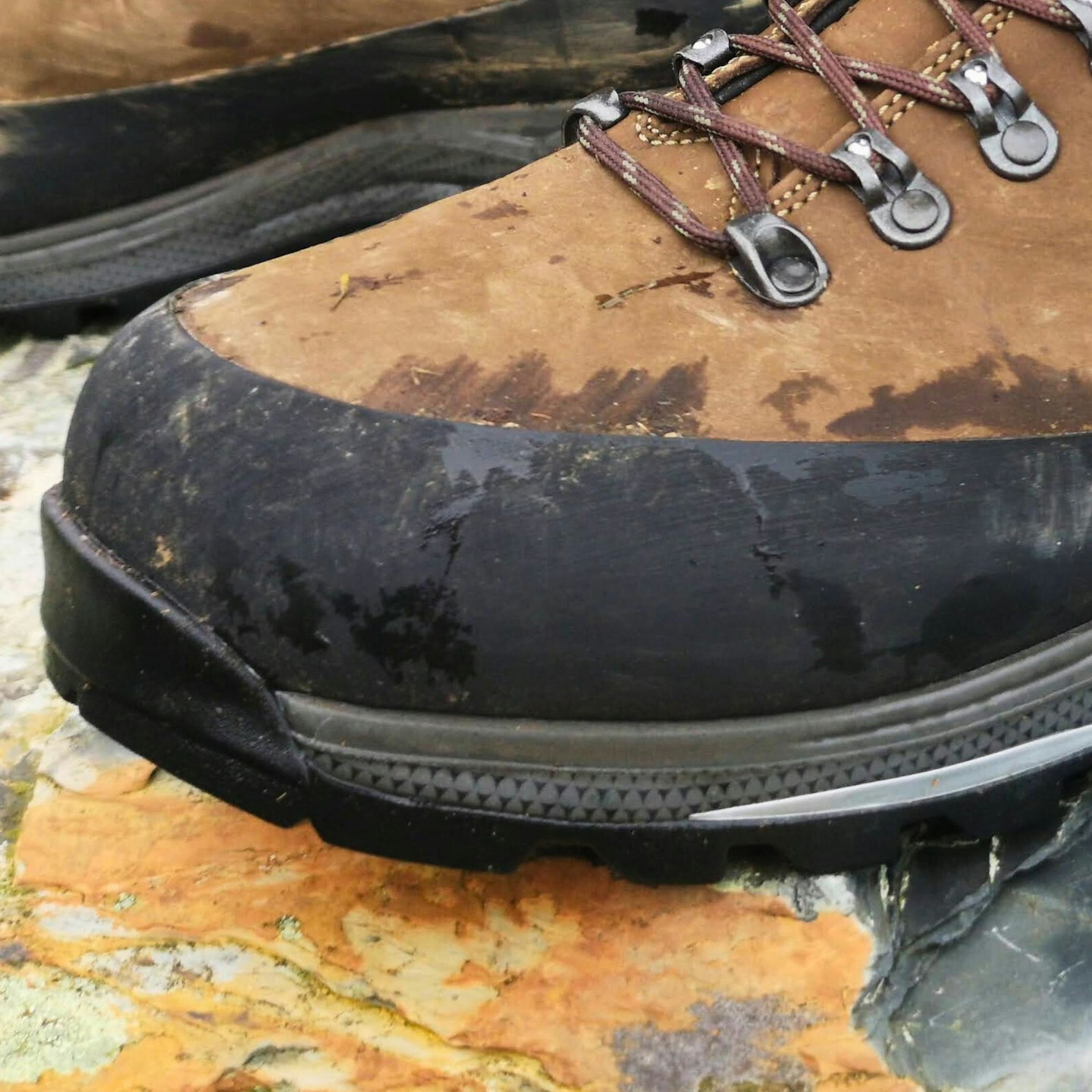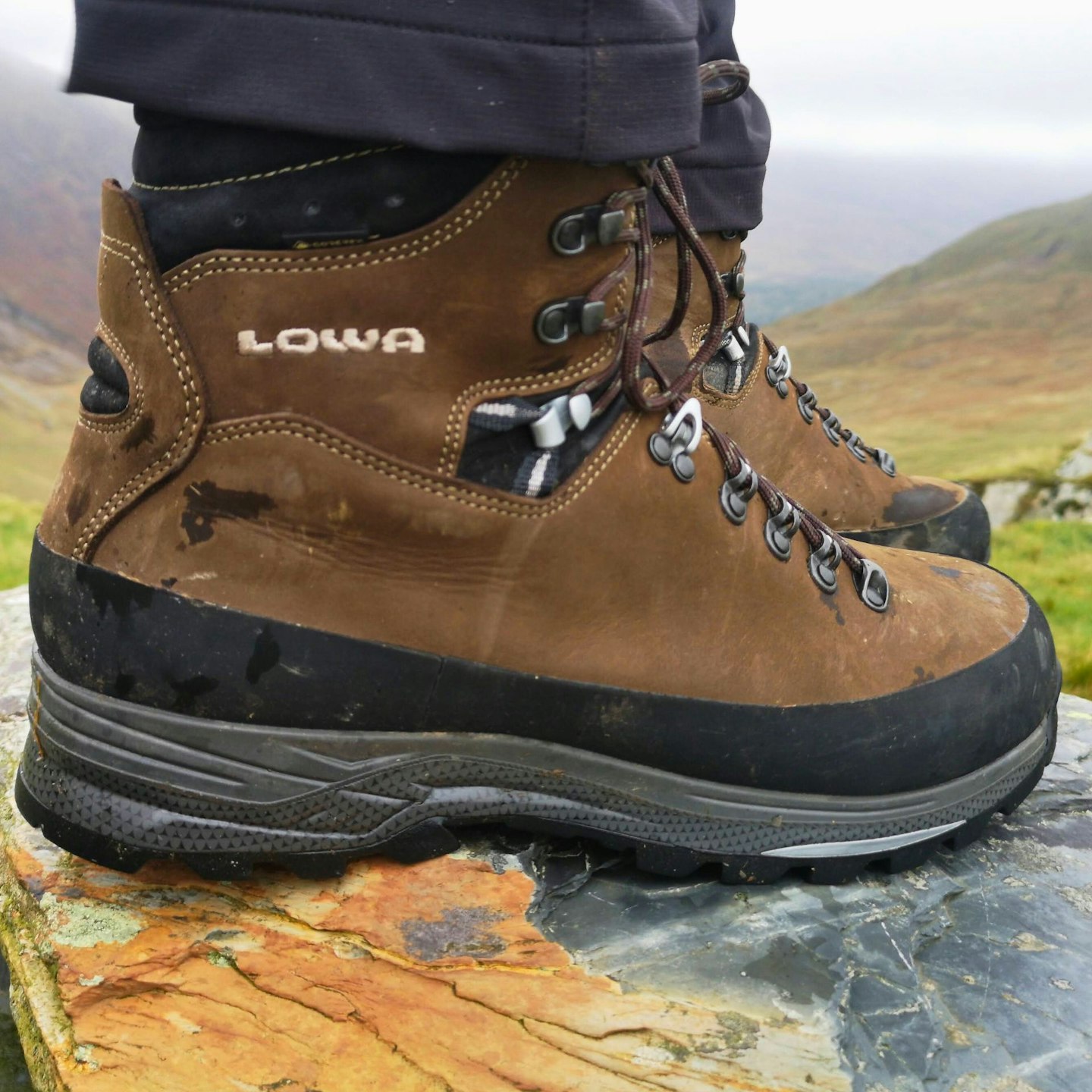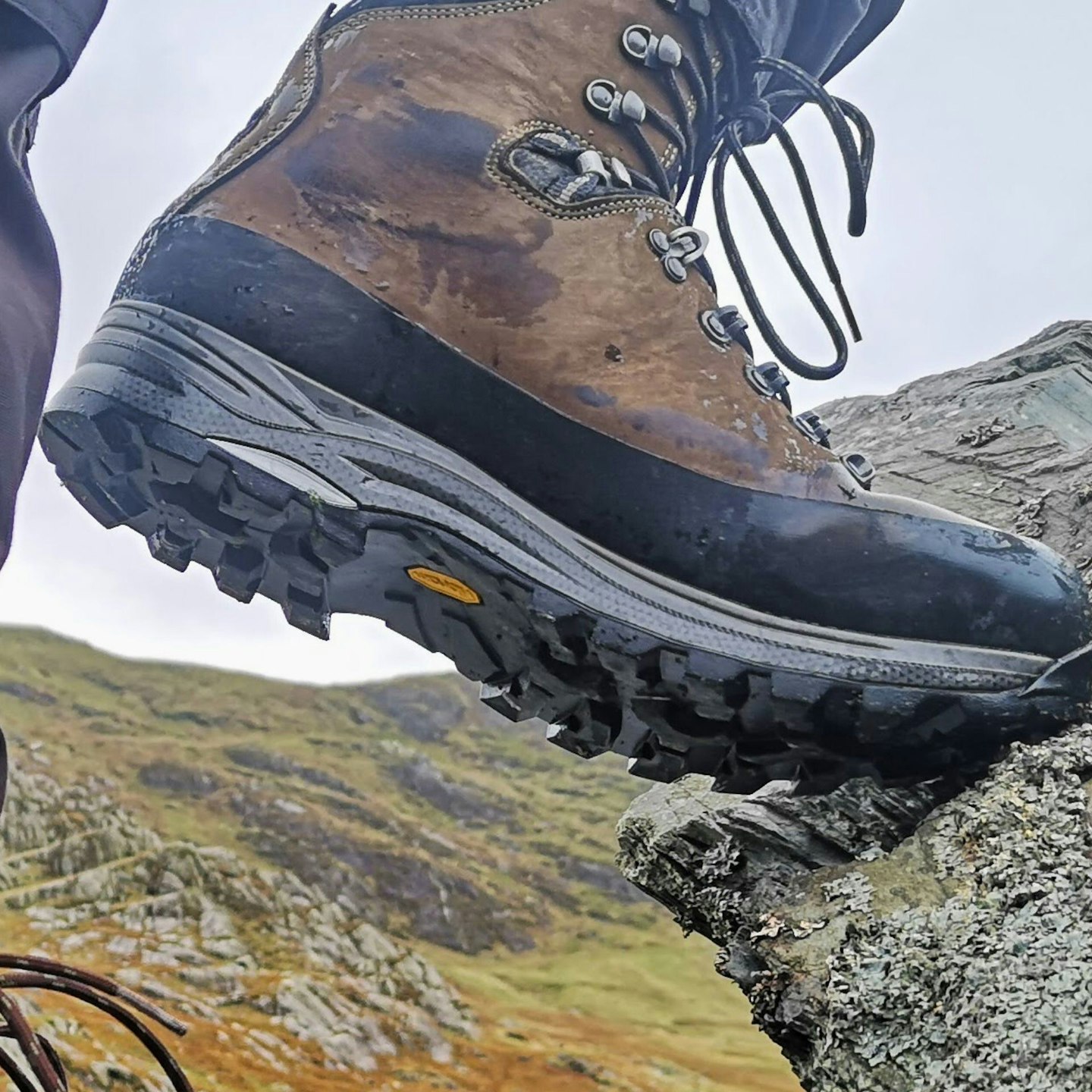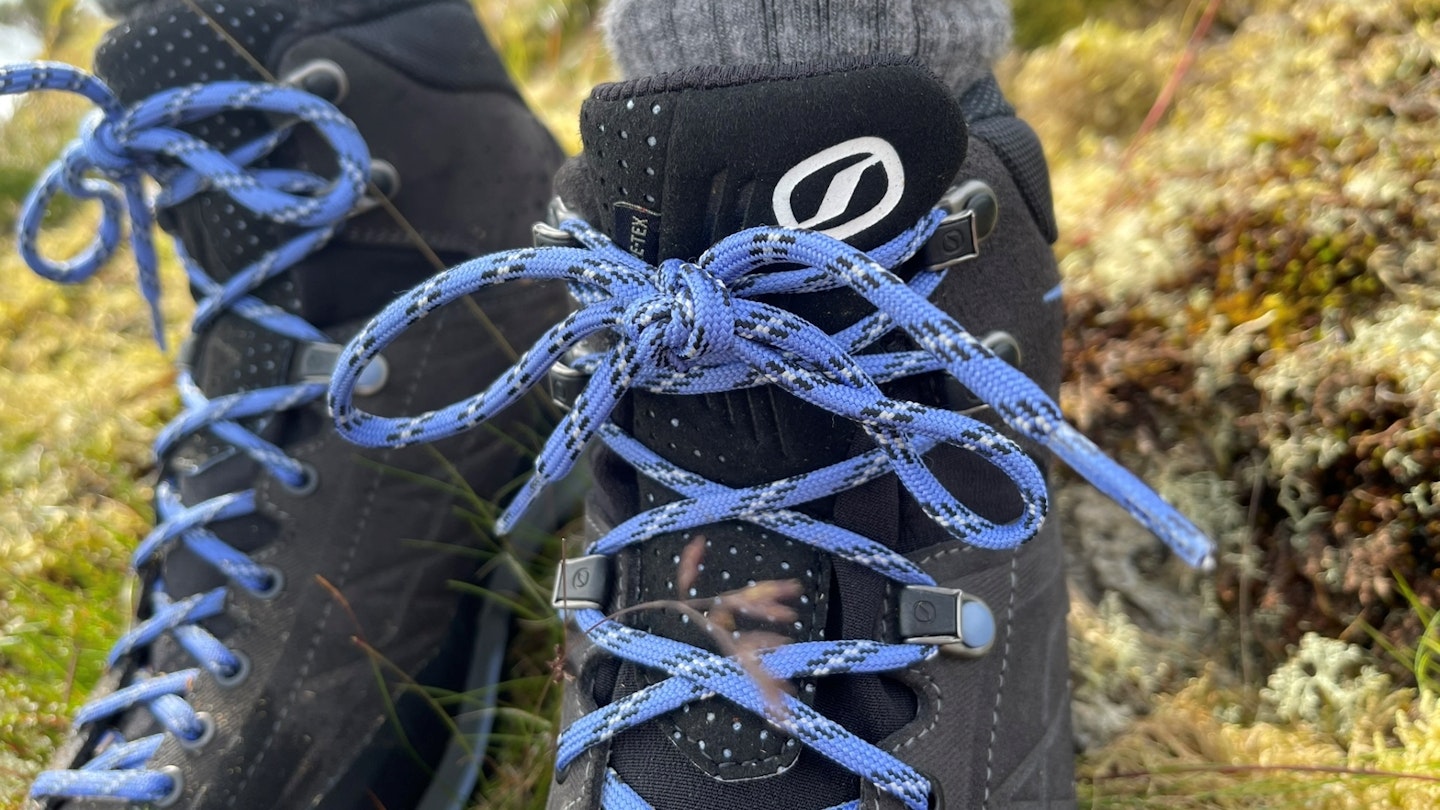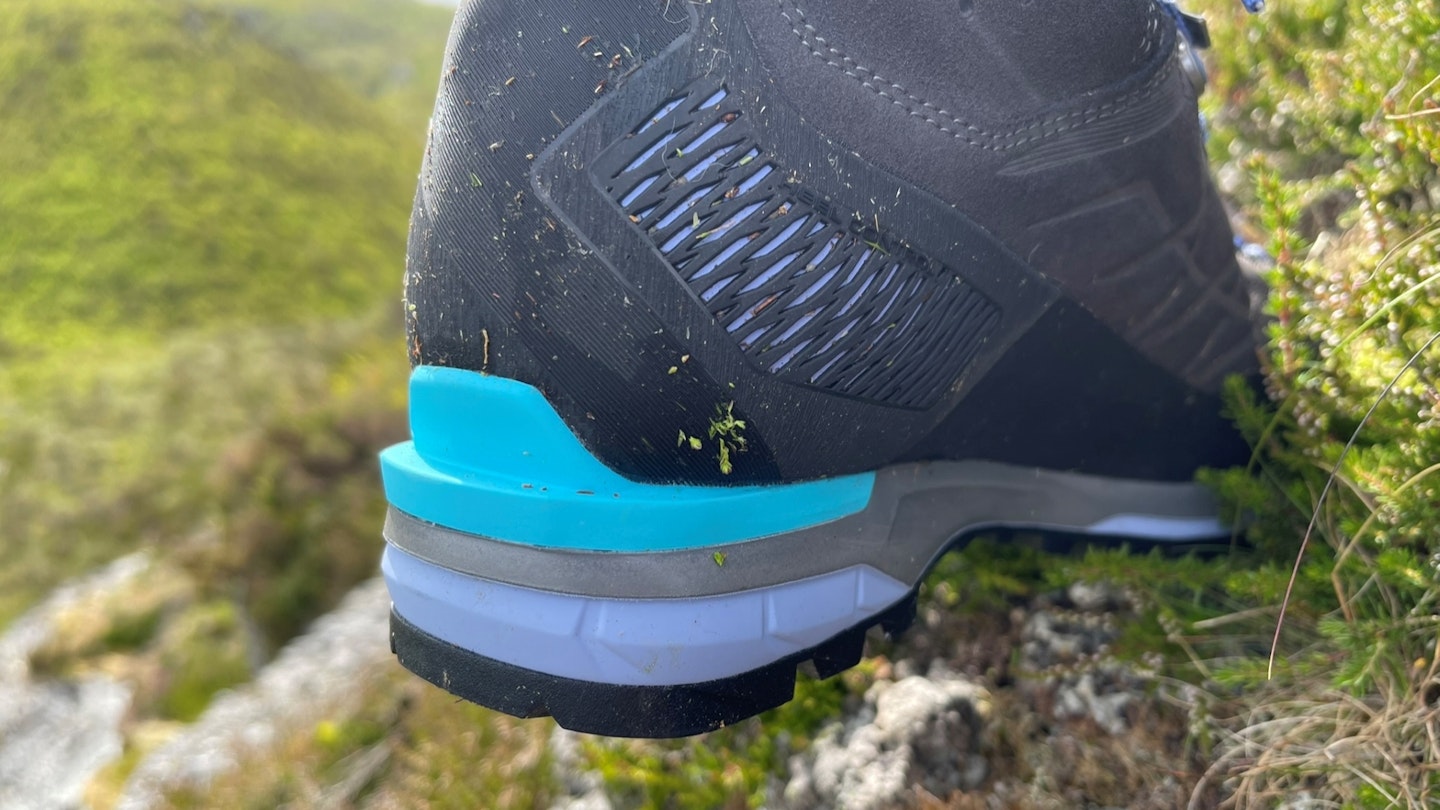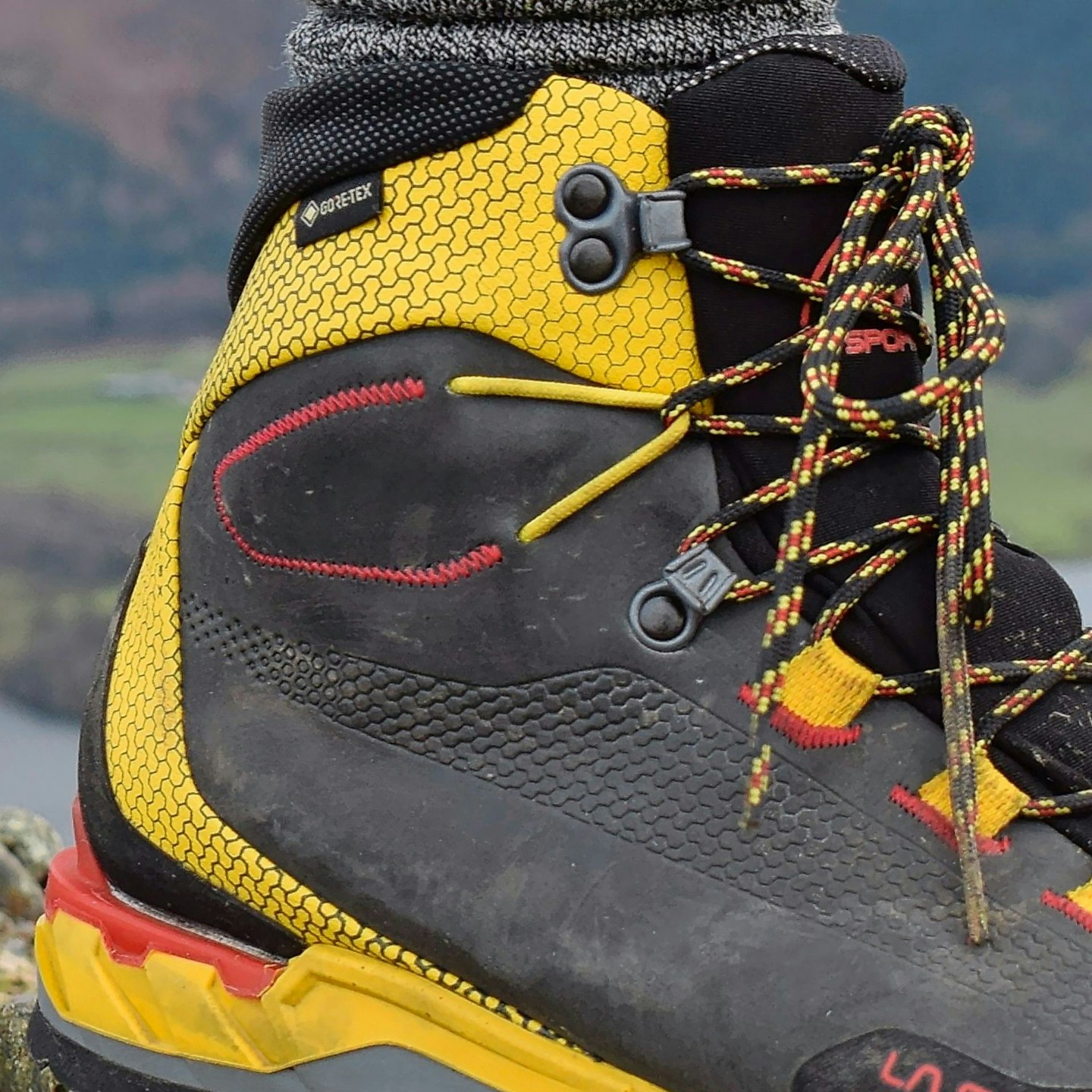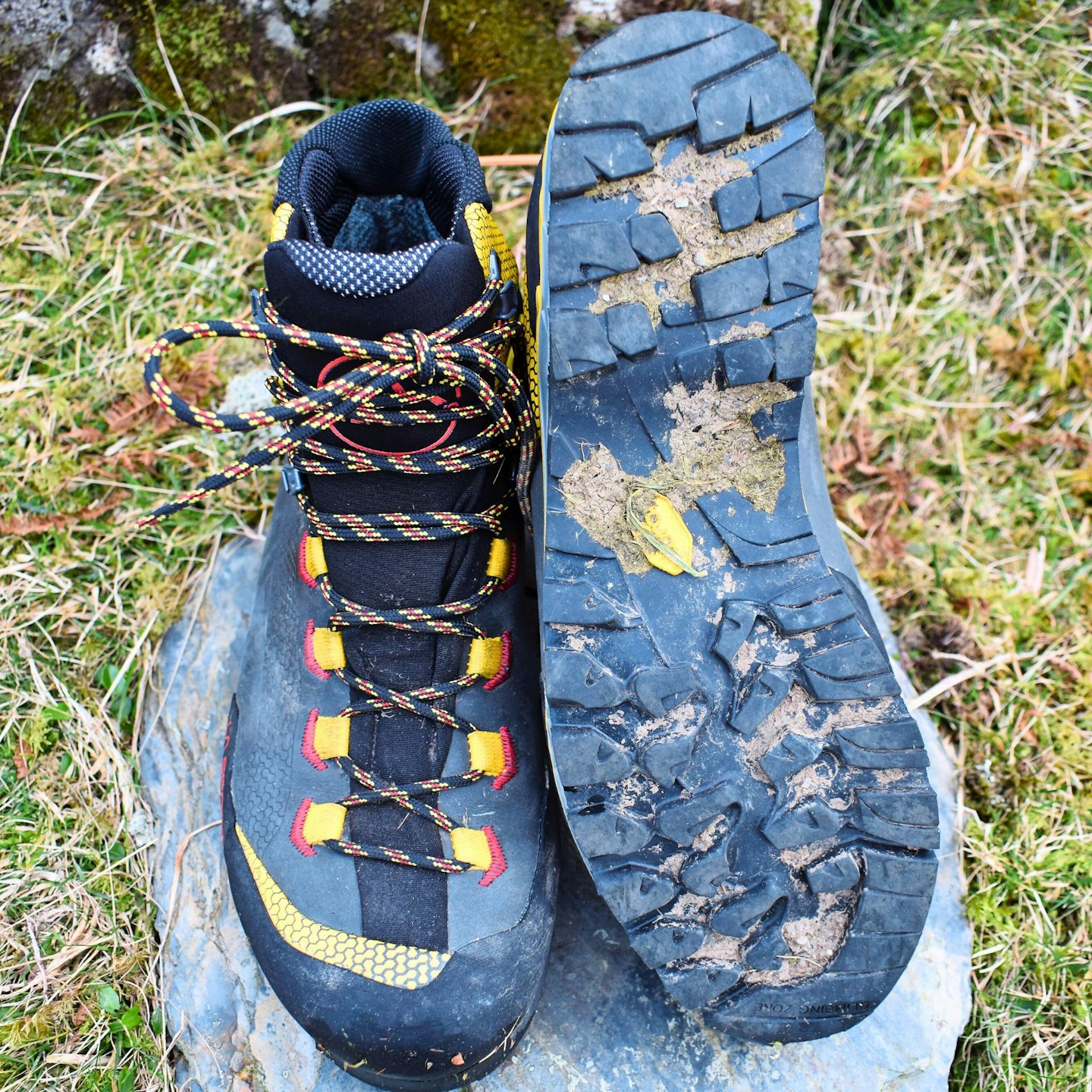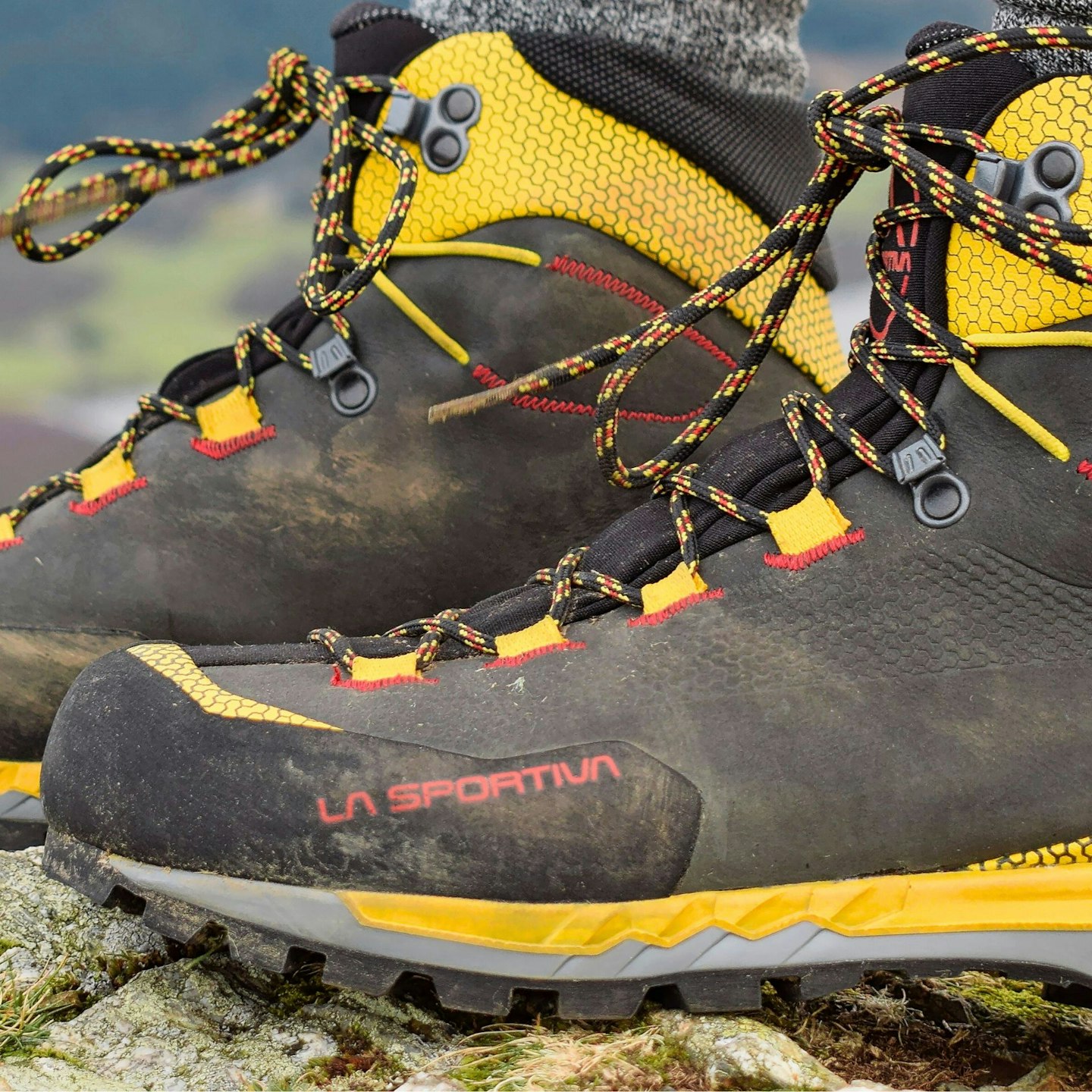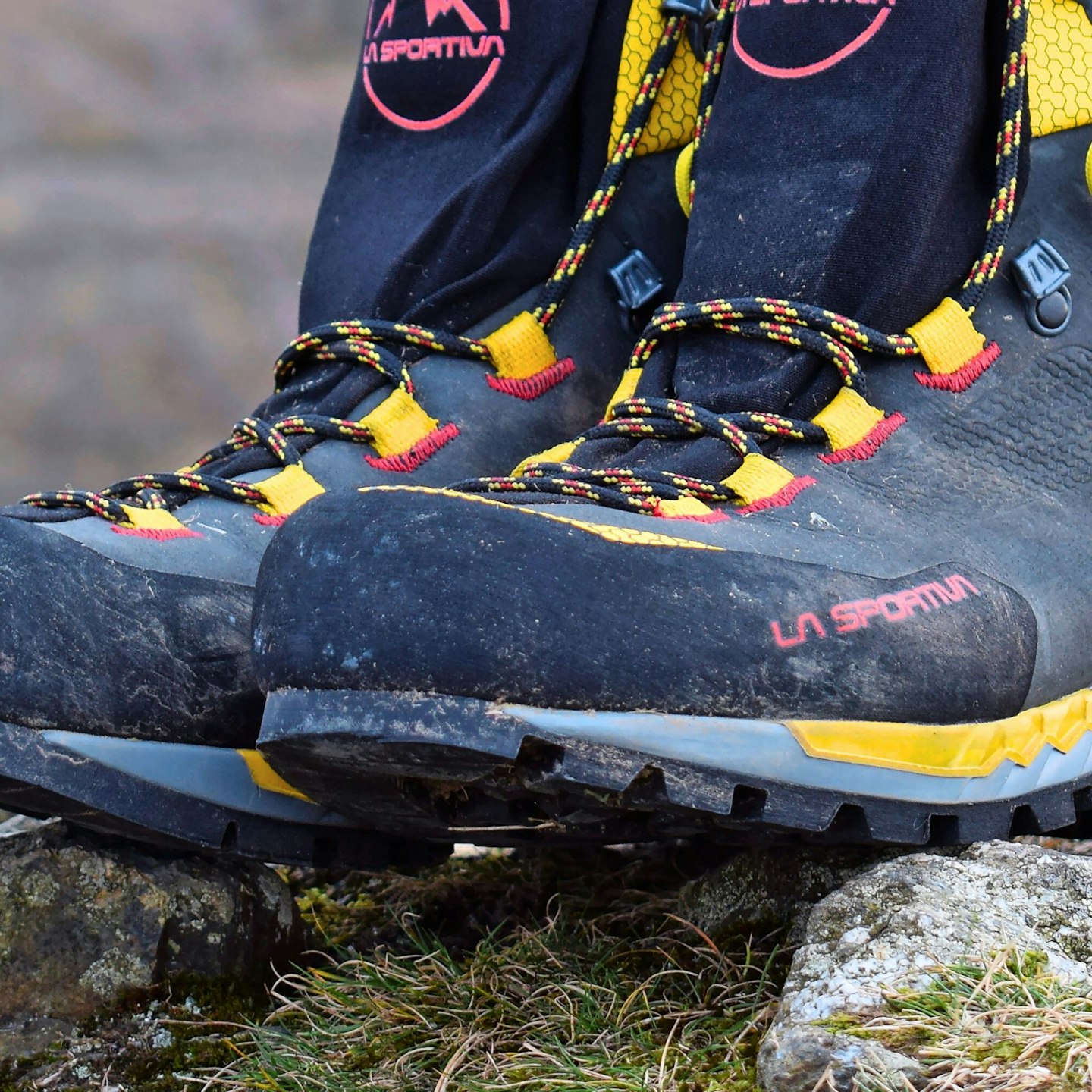Despite all the technological advances in walking boot design, the traditional leather walking boot remains the mainstay of many hikers’ wardrobes.
The reasons are obvious. Quality leather boots are extremely durable and can often be re-soled. This means leather boots can pretty much last a lifetime, if you treat them well.
The hardiest of leather boots usually require some breaking in (although many modern leather boots don't anymore), but once that's done, they're incredibly comfortable. And of course, that leather boot look swoons many a hiker.
The leather boot market remains a crowded one, because in addition to the classic brown leather walking boot, today we are presented with a wide array of designs and styles. For example, many modern leather hiking boots add panels of synthetic material, either for reinforcing abrasion-prone areas, or for improving comfort and breathability.
As a consequence of progress, leather boots occupy all areas of the hiking boot market, from the most specialised mountaineering boot to lightweight models for speedy day hikes.
How we tested the best leather boots
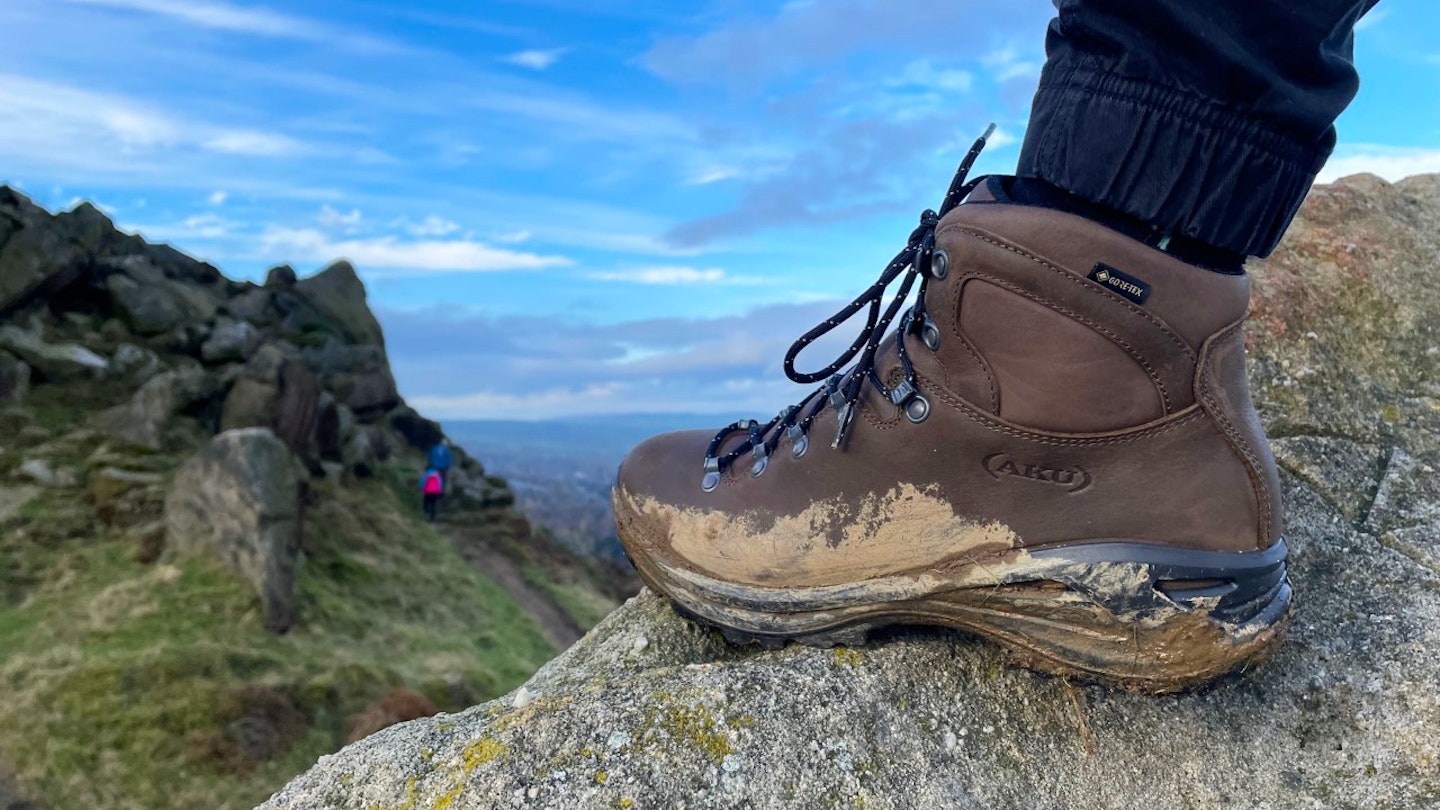
Most of the boots recommended here were tested by Chris Williams. Chris has been testing gear for Live for the Outdoors since 2021, and has journalistic, outdoor industry, and basically a whole lifetime's worth of hiking experience to bring to his gear reviews.
The boots we test cover many miles over a lot of different terrain. What we look for in hiking boots is whether their performance matches their design remit and whether their features offer tangible real world benefits. Sustainability is also a very important factor for us.
Read more on how we test here.
What are the best leather walking boots of 2025?
Gear of the Year 2024 winner: AKU Trekker Lite III GTX
Runner up best leather boot: Hanwag Makra Trek GTX
Best value: Berghaus HillwalkerII GTX
Best technical leather boot: La Sportiva Trango Tech Leather GTX
Best leather walking boots reviewed:
As an all-rounder, it's near impossible to beat AKU's Trekker Lite III GTX boot.
With a price of just over £200 it undercuts premium, high-performance rivals on price while still being able to take them on in terms of quality and performance. At the same time, it's a far more durable and capable boot than those costing under £200 (which are mostly mid-height models) and totally worth the extra if you can stretch your budget.
The Trekker III GTX is made in Italy with a upper made of a mixture of suede leather and AKU's Air 8000 fabric to help boost breathability. Underfoot, there is an excellent Vibram sole.
Whether tackling a hill walk or a more technical mountain hike, the Trekker Lite III GTX is a brilliant boot, offering load of grip, comfort, stability, and durability. There is a men's and women's version, each having a wide fit option too, making the Trekker Lite III GTX suitable for most people.
Check out the women's version here
Read our full AKU Trekker Lite III GTX review
Pros
- Superb price-performance balance
- Durable construction
- Wide fit available
- Lightweight for a mountain boot
- Excellent Vibram sole
Cons
- Not the most cushioned midsole
| Weight (per boot) | 570g |
| Upper | Suede leather and Air 8000 w/ Gore-Tex lining |
| Sole | Vibram Curcuma |
| Men's sizes | UK 6 - 15 |
| Women's sizes | UK 3 - 9 |
We were seriously impressed by Hanwag’s Makra Trek GTX boot. It’s pricey but after our field test, we think it’s worth every penny because it excels in almost every hiking circumstance.
It’s not crampon-compatible but has a sibling (Makra Trek GTX Pro) that is. And being a waterproof leather boot weighing in at 635g (UK8), it’s not ideal for hot, speedy day hikes. But for everything else, from 3-4 season hill and fell walking, to long distance treks, to alpine hikes, the Makra Trek GTX is incredibly capable.
We found that the boot height (as opposed to the increasingly popular ‘mid’ height) provided wonderful stability and ankle support. Yet, the midsole has good flex, which encourages a more natural walking action. And because the gusseted tongue reaches above the second lace hook, water and debris ingress was never an issue for us.
Whether descending a muddy hillside or ascending a rocky scramble, the Vibram outsole gave us dependable grip – the lugs are deep and widely spaced; there is also a decent heel brake and climbing zone on the toe.
On test, the Makra Trek GTX was incredibly comfortable compared to other burly leather boots (inciting an audible ‘wow’ when we put them on), with excellent padding around the ankle, and two-zone, full-length lacing that allows for a highly personalised fit.
It’s a tough boot, with a burly toe cap and hard wearing heel insert. It can be re-soled too, which is a huge longevity and sustainability bonus. These boots are made in Croatia, with the leather being responsibly sourced in Europe.
Check out the women's version here
Read our full Hanwag Makra Trek GTX review
Pros
- Excels in most conditions
- High abrasion and ingress protection
- Can be re-soled
- Good midsole flex
- Stable and supportive fit
- Wide fit model available
Cons
- Not crampon compatible (if that’s what you’re after)
- Only worth it for avid hikers
| Weight (per boot) | 635g |
| Upper | Suede leather and textile w/ Gore-Tex lining |
| Sole | Vibram Integral Light |
| Men's sizes | UK 6 - 13 |
| Women's sizes | UK 3.5 - 9 |
Berghaus unashamedly calls its Hillwalker II GTX the ‘ultimate British-weather' walking boot. Pound for pound, we’d agree with that, because this boot took us all over British hills and moorland in comfort and confidence.
Beginning with fit, we found the Hillwalker II GTX has a medium width-type fit, similar to Merrell, for example. There’s an Ortholite insole, which is quite soft and squishy, and so too is the boot collar. The top of the boot offers reasonable ankle support and protection but, tries to give you some agility as well by dropping significantly behind the Achilles tendon.
We liked this setup for leisure and easier hillwalking where you need some stability for dealing with rutted paths, where a full height boot would be a bit restrictive and overkill.
Berghaus uses its own sole design for the Hillwalker II GTX. It has a decent heel brake, which we found performed really well on downhill sections. The lugs are quite deep and grip reliably on the almost perma-moist terrain gracing much of Britain’s hiking trails. Where we had a couple of slips on steep, wet, uphill sections, but find me footwear that wouldn’t struggle a bit there.
You’ll notice the Hillwalker II GTX has a bit of a toe cap, but doesn’t have a protective rand. So, the Hillwalker II GTX is susceptible to grazes and attacks from rock. However, the leather is predictably hard wearing and the lack of stitching is a major boost to durability.
All leather Berghaus uses is Leather Working Group certified, the company is a certified B Corp, and has its in-house repair team (Repairhaus).
Check out the women's version here
Pros
- Well priced
- Good grip for non-technical hiking and hillwalking
- LWG-certified leather
Cons
- No rand or abrasion protection
| Weight (per boot) | 601g |
| Upper | LWG-certified suede leather w/ Gore-Tex lining |
| Sole | OPTI-STUD |
| Men's sizes | UK 7 - 12 |
| Women's sizes | UK 4 - 8 |
Sporting a design that is a very far cry from the old school leather boot adored by many, the Scarpa Rush Trek Pro GTX is a tremendous hiking boot.
The Rush Trek Pro GTX is triumph of modern boot engineering, which combines timeless features like nubuck leather, Gore-Tex waterproofing, and metal lacing hardware for toughness and longevity with innovative details like the dual density midsole and clever padded collar for out-of-the-box comfort.
We tested the women’s version, which is built on a different last (boot shape) than the men’s version. The result is a fit that’s properly tailored to a women’s fit, albeit quite a slim one. Underfoot and ankle comfort is superb, thanks to the aforementioned EVA midsole and collar featuring softshell and foam padding.
Vibram is the name of the game for soles, but Scarpa back its own design. So, the Rush Trk Pro GTX uses a proprietary outsole and for all but the most demanding mountain adventures, it’s remarkably capable. And when it wears out, this boot can be resoled.
The variety of scenarios where this boot excels, in addition to its surprising ability to be durable yet reasonably lightweight and agile earned the Rush Trk Pro GTX one of our Gear of Year Awards for 2023.
Check out the women's version here
Read our full Scarpa Rush Trk Pro Walking Boots review
Pros
- Impressive performance for a relatively lightweight boot
- Can be re-soled
- Good cushioning
- Excellent grip
Cons
- Boot last won't suit everyone
| Weight (per boot) | 580g (size 42) |
| Upper | Nubuck leather w/ Gore-Tex Extended Comfort lining |
| Sole | Scarpa Presa TRK-01 Supergum |
| Men's sizes | EU 40 - 48 |
| Women's sizes | EU 36 - 42 |
The Meindl Bhutan MFS is a best seller from the German boot specialist Meindl, and is a true classic leather walking boot albeit with a couple of welcome modern touches.
The Bhutan MFS exhibits what true quality and longevity means with walking boots, made all the more obvious in a market full of lightweight synthetic alternatives. The Bhutan MFS has a nubuck leather upper plus a wraparound rubber rand to defend against abrasion. And the Vibram sole can be replaced if or when required.
It's not an especially technical boot, being most at home on hillwalks, but it's a superb long distance boot once broken in, and offers some of the best waterproofing on the market thanks to an ideal trio: high boot cut, leather upper, and Gore-Tex lining.
That aforementioned Vibram sole grips well in mud, boggy terrain, grass, and dry rock. It struggles a bit on wet rock, though as so many walking boots do.
In terms of comfort, it's predictably heavy. However, the Bhutan MFS offers reassuring stability and its Memory Foam System (MFS) around the ankle is soft, padded, and moulds to the wearer's ankle.
Check out the women's version here
Read our full Meindl Bhutan MFS review
Pros
- Very tough and durable
- Excellent waterproofing
- Good foot protection
- Can be resoled
Cons
- Heavy
- Stiff
| Weight (per boot) | 807g |
| Upper | Nubuck leather w/ Gore-Tex lining |
| Sole | Meindl Multigrip Vibram |
| Men's sizes | UK 6 - 14 |
| Women's sizes | UK 3.5 - 9 |
There’s a familiar string of opinions among reviewers when it comes to Keen hiking boots: wide fit, super comfy, but not super technical. Keen has captured the loyalty of a significant portion of hikers because of these traits. And in cutting straight to the chase, the NXIS Explorer continues Keen’s strong family bloodline.
The mid-height NXIS Explorer boot is clearly not a technical hiking boot. But at about 460g, it’s the lightest boot here and the only one to dip under the 500g mark. On test, we found the main pros of this are twofold. We had sneaker-like agility while wearing these boots, yet sporting a full leather upper, the NXIS Explorer offers a noticeable durability upgrade to lightweight synthetic hiking boots.
Keen’s classic wider fit encourages your foot to sit more naturally with toes splayed. In addition to comfort, we found this helps with balance too.
Expective the NXIS Explorer to cope with tough, technical terrain would be foolish. But we were impressed how well the 4mm lugs gripped on loose dirt, rock, and wet grass, even on ascents and descents.
The NXIS Explorer is reasonably sustainable, too. It uses LWG-certified leather and is PFC/PFAS-free.
Check out the women's version here
Pros
- Sneaker-like agility
- Lightweight
- Excellent fit
- LWG-certified leather
Cons
- Not suitable for technical/challenging terrain
| Weight (per boot) | 462g |
| Upper | LWG-certified leather w/ KEEN.DRY lining |
| Sole | KEEN.ALL-TERRAIN w/ 4mm lugs |
| Men's sizes | EU 39.5 - 48 |
| Women's sizes | EU 35 - 43 |
7.
Lowa Tibet GTX
Beefy, capable, and unpretentious, we found that Lowa’s Tibet GTX is a brilliant mountain trekking boot that delivers stability in spades. It is a full boot height (rather than the increasingly popular ‘mid’ height boot), with 2.5mm leather, and a midsole stiff enough to take a strap-on crampon.
We liked how the Tibet GTX kept our feet warm and dry on test. Predictably, it’s a heavy boot with some added stiffness to the midsole. But it still manages to provide plenty of comfort and allows a natural walking motion.
Chunky, widely spaced lugs, plus a decent heel brake gave us ample traction on a range of terrain and gradients. Where the Keen NXIS Explorer could be likened to something like a grass kart, the big Tibet GTX is more like a tractor. Large and clumpy, but sure-footed and tough.
The Lowa Tibet GTX is made in Europe using European-sourced leather that is ‘free of pollutants’. There is a wide fit available, and the boot can be resoled as well. However, there’s no women’s version (the Lady III GTX is the closest).
Check out the Lowa Lady III GTX here
Pros
- Tough and stable
- Can take a strap-on crampon
- Full rand for abrasion protection
- Reliable grip
- Wide fit available
- Can be resoled
Cons
- Heavy
- Others better for really technical terrain
- No direct women's version
| Weight (per boot) | 940g |
| Upper | Nubuck leather w/ Gore-Tex lining |
| Sole | Vibram Masai |
| Men's sizes | UK 7 - 13 |
| Women's sizes | N/A |
The Scarpa Zodiac Tech GTX is a hybrid mountaineering and hiking boot that excels in rugged, technical terrain. Originally developed for Alpine guides and search and rescue teams, it balances durability, support, and all-day comfort. The design retains its relevance nearly a decade after its debut, with updates to keep it competitive.
This boot is stiff enough to handle scrambles and glacier crossings, and it’s crampon-compatible for winter adventures. The robust construction offers excellent protection, with suede uppers, a Gore-Tex membrane for waterproofing, and a partial rubber rand for added durability. While not the lightest option, it’s noticeably more protective than a standard approach shoe.
The fit is slightly broader than some competitors, which enhances comfort over long days, though it may not suit narrower feet. For those seeking a tough, versatile boot for mixed mountain use, the Zodiac Tech GTX remains a top contender.
Check out the women's version here
Read our full Scarpa Zodiac Tech GTX review
Pros
- Durable
- Versatile
Cons
- Not the lightest
- Broader fit won’t suit everyone
| Weight: | 680g per boot (UK 8) |
| Sizes: | Men’s EU 41-48, women’s EU 37-42 |
| Upper: | 1.6-1.8mm Perwanger Suede leather with rubber rand |
| Waterproof lining: | Gore-Tex Performance Comfort |
La Sportiva’s Trango family is quite extensive, ranging from the mightiest mountain boots to more humble hiking boots. The Trango Tech Leather GTX sits at the hiking end of the scale and has been around since 2020, but our extensive testing has proven it’s still a seriously capable and well-rounded boot.
It certainly looks quite technical, with its full-length lacing, single piece leather upper, large rubber caps at the toe and heel, and high ankle cut. Indeed, it’s stiff enough to take a crampon, but the Trango Tech Leather GTX is still comfortable enough for long days covering a lot of ground.
We found the key to this is a signature feature of the Trango family: the 3D-Flex System. It’s basically a hinge in the upper, which gives greater ankle movement and comfort without compromising on stability. Clever stuff.
It’s not the most cushioned boot, and the stiffness will render it unsuitable for hillwalkers. But for those venturing into mountainous terrain, it’s sublime.
Check out the women's version here
Pros
- Fantastic grip and support
- Very comfortable
- Durable
- Resoleable
- Crampon compatible
Cons
- Overkill for some
- Quite stiff
| Weight (per boot) | 640g |
| Upper | Nubuck leather and microfibre inserts w/ Gore-Tex lining |
| Sole | La Sportiva Cube Vibram |
| Men's sizes | EU 38 - 48 |
| Women's sizes | EU 36 - 42 |
Before this boot, we first tested the Mountain 600 Leaf, Danner's lightweight hiker. We liked it very much as a town to trail-type boot but naturally we were left wondering whether it could be made a bit more capable.
About a year later this EVO version came along and we love it. We've tested it all over the place, including in the Scottish mountains and it's performed admirably. The Mountain 600 EVO is grippy and supportive but what amazed us most was the comfort. Almost full grain leather boots we've tested have required at least some break in time but this boot didn't.
It's not a perfect boot, however. We think it's a bit overpriced for what it is. Comparable rivals from brands like AKU offer more for less. We also wish this boot had at least a partial rand to protect the toe and forefoot against scrapes.
But, as we say, as far as comfort is concerned, this is one of the best leather boots we've tested (and it's available in two widths).
Check out the Women's version here
Read our full Danner Mountain 600 EVO review
Pros
- Surprisingly, no break-in time
- Supplied with flat and round laces
- Loads of grip
- Can be resoled
Cons
- We'd like to see a proper toe bumper and rand on this boot
| Weight (per boot) | 567g |
| Upper | LWG gold rated full grain leather w/ Gore-Tex lining |
| Sole | Vibram Fuga + Traction |
| Men's sizes | US 7 - 15 |
| Women's sizes | US 5 - 11 |
What to look for in leather walking boots
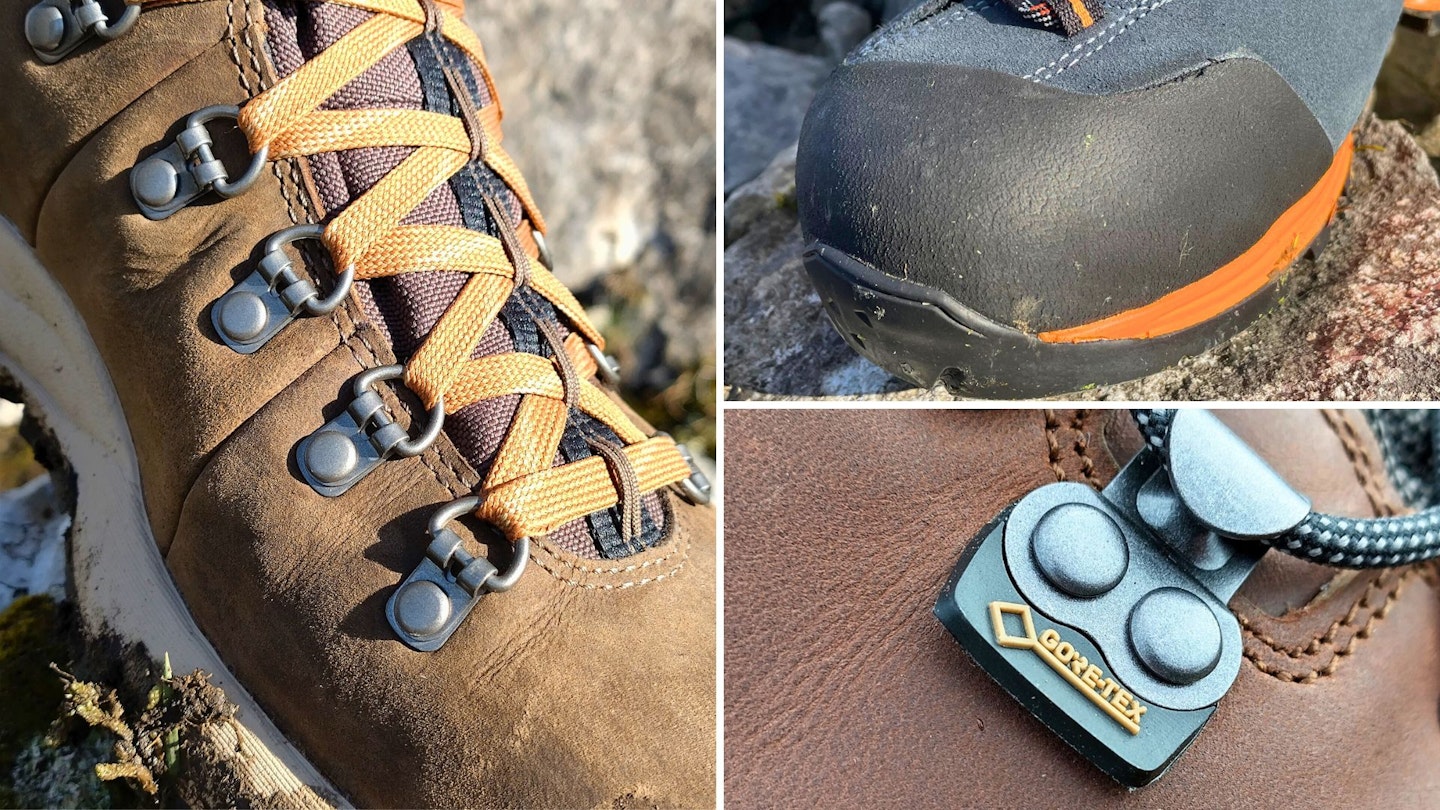
How to break in leather boots
Hard wearing with longevity in mind, many leather boots (especially full grain) feel stiff and rigid when new and not especially comfortable to walk in. But use them for a few short hikes and wear them around the house. The leather will give and soften, and you'll be rewarded with superbly comfortable hiking footwear.
Use thick, padded socks with new leather boots if you have them. Otherwise, you can use plasters, bandages, or blister pads to help you break in your leather boots more comfortably.
However, throughout our years of testing, each year we've found that many leather boots have shorter and shorter break in times.
What's best? Full grain, nubuck, or suede?
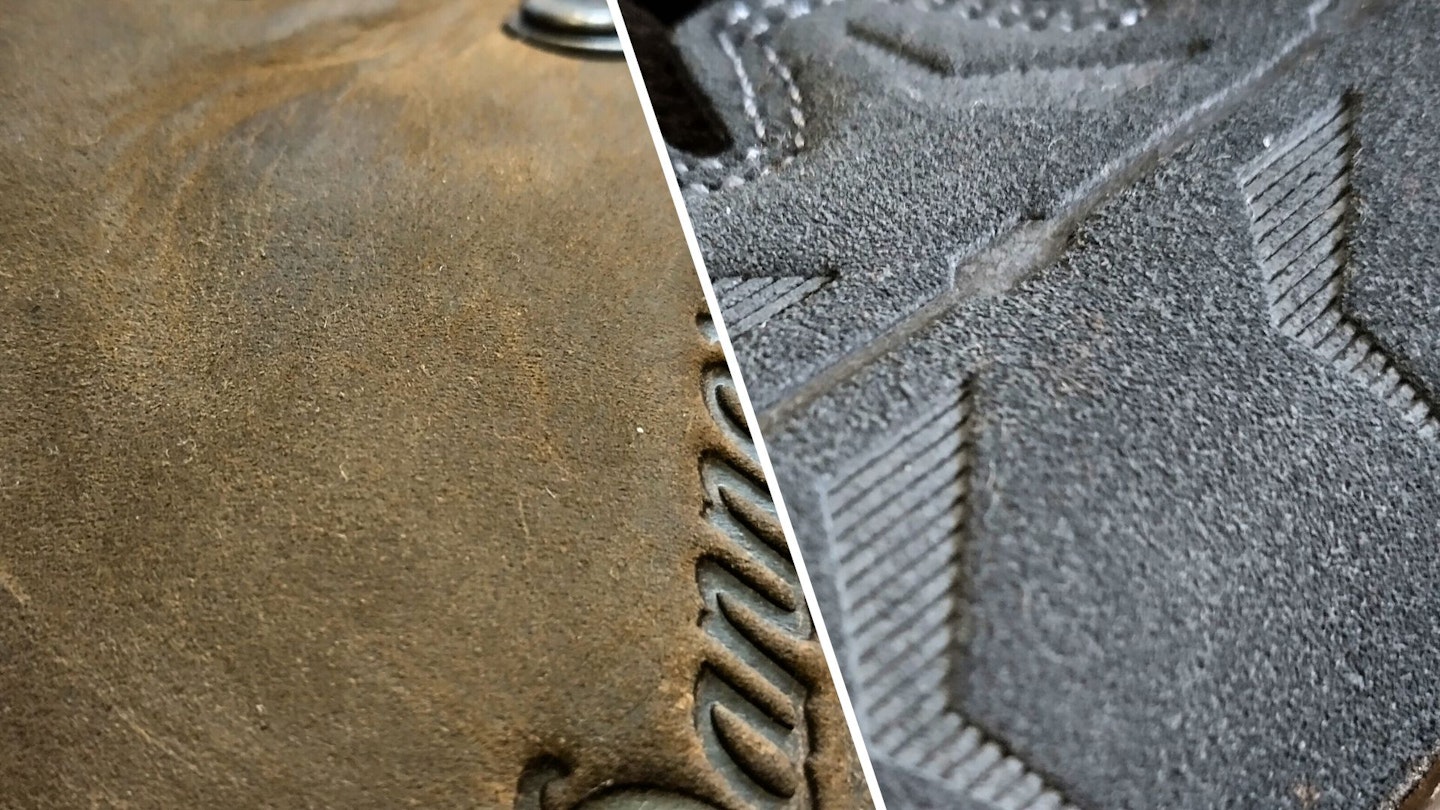
Whether leather is called full grain, nubuck, or suede comes down to the production (treating, tanning, and crusting) process.
Full grain leather comes from the top layer of the animal hide. It gains its reputation as the most durable form of leather because the hide's top layer is the strongest part, and full grain leather also develops a kind of protective layer through use over time. It's called full grain because the skin it's made from is very tight and has a close grain pattern.
Nubuck, like full grain leather, comes from the top layer of the hide. The difference is that Nubuck gets buffed and polished to give it a more velvety feel and appearance. It's not as tough as full grain leather and can be scratched more easily, but it's still highly durable and hard wearing.
Suede can come from the top layer or underside (called split leather) of the hide. Suede is more textured than full grain and nubuck, and remains quite tough and breathable, while also having a nice aesthetic. But in order for it to remain so, it needs more frequent care and cleaning than full grain or nubuck.

Are leather boots sustainable?
Leather is made from animal hide, so there's no escaping that truth. But there are steps you can take to ensure the leather used to make your footwear is sourced responsibly and has a reduced footprint.
The Leather Working Group (LWG) is a good place to start. It's a large organisation that audits and certifies leather supply chains, ensuring transparency, responsibility, and sustainability.
Buying LWG-certified leather footwear is something to keep a look out for. Also investigate a brand's information on how and where they source their leather. The more clear detail they provide, generally the more you can trust the brand.
Other aspects such as local manufacturing and supply chains are important too.
In terms of the finished product, longevity is a crucial aspect to sustainability, and in this regard, leather boots far outperform synthetic ones. If your leather boot can be resoled, the brand should provide that service or recommend an agent local to you.
Alternatively, in the UK for example, Lancashire Sports Repairs offers a very wide range of footwear (and other outdoor gear) repairs.
Other features to consider
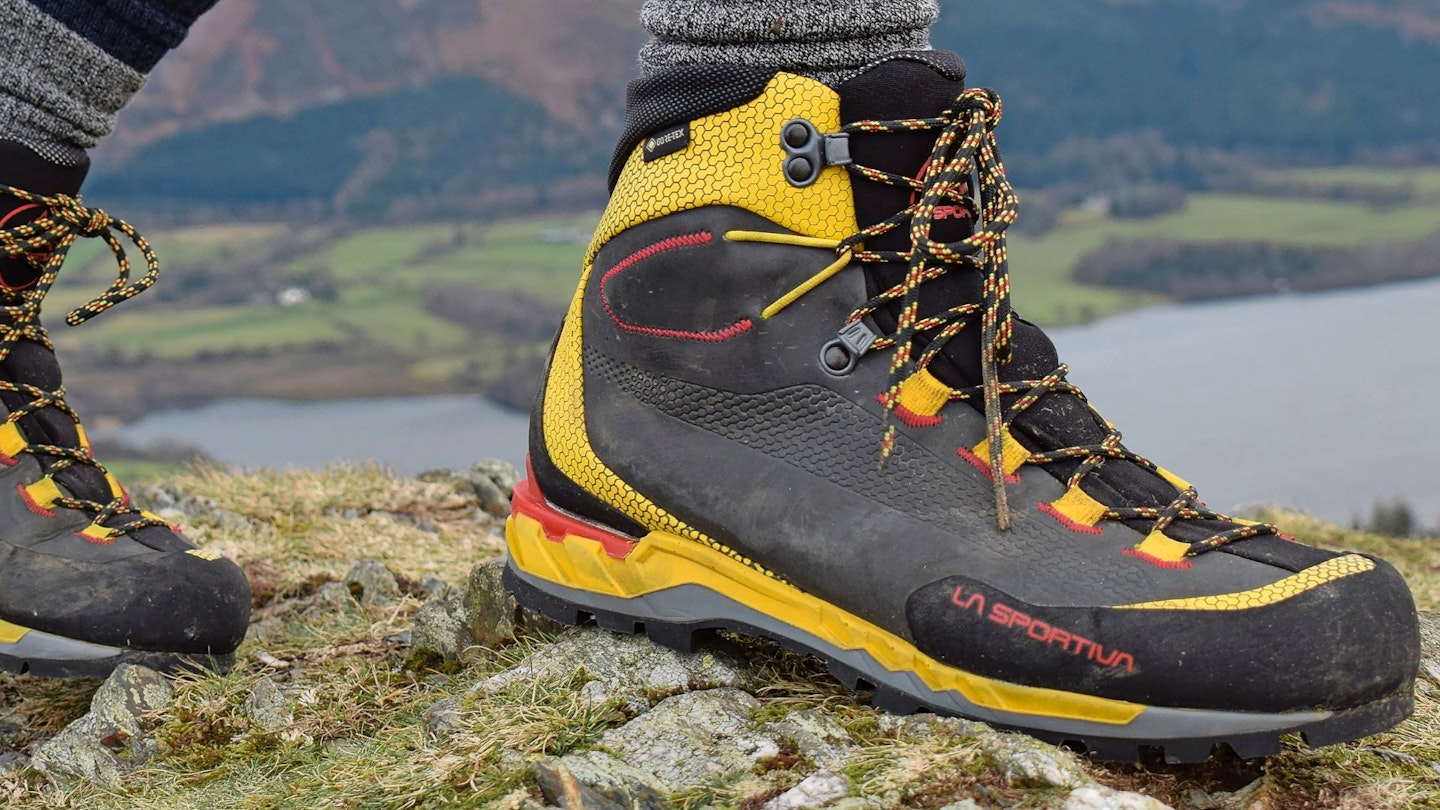
In terms of boot height, higher cuffs offer additional ankle support, which is good for stability, reducing the risk of sprains, and ingress protection. Meanwhile, a lower cut benefits agility.
A flexible sole is preferred for even ground, while a rigid sole offers superior performance on inclines, scrambles and rough ground. Stiffness is an important factor that separates hillwalking boots from winter ones.
Added armour such as a toe cap and rand (a strip that can wrap around the toe, sole or whole boot) boost foot protection and boot durability.
Deep, well-spaced lugs bite into the soft ground without clogging. A deep heel breast – the step between the heel and midfoot area of the sole unit – is vital for providing braking power in descents.
How do I clean leather walking boots?
To make the leather on your walking boots last as long as possible and perform as well as they can, you need to take the time to care for and clean them properly.
We recommend Grangers Footwear + Gear Cleaner because it's effective, easy to use, suitable for all leather including suede, and eco friendly. For full grain leather, Grangers Waterproofing Wax is best. (Nikwax's products are very good, too.).
Footwear + Gear Cleaner is an effective cleaner and odour eliminator. The Waterproofing Wax does a great job at conditioning and protecting the leather, while maintaining breathability and water repellency.
Recommended
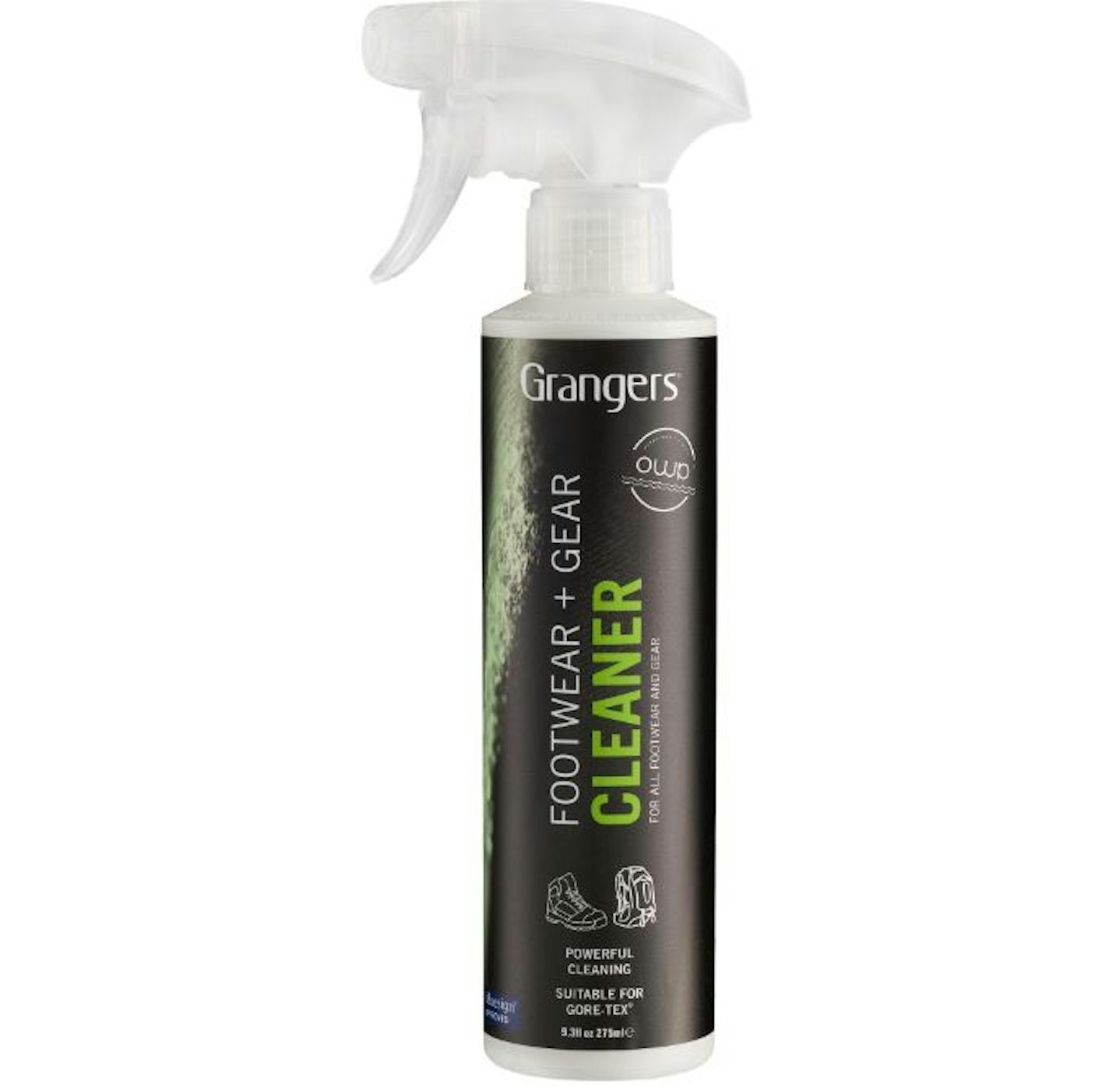
Simple, easy-to-use spray that does many cleans. The solution is water-based and PFC-free and the bottle is made from Ocean Waste Plastic too.
Recommended
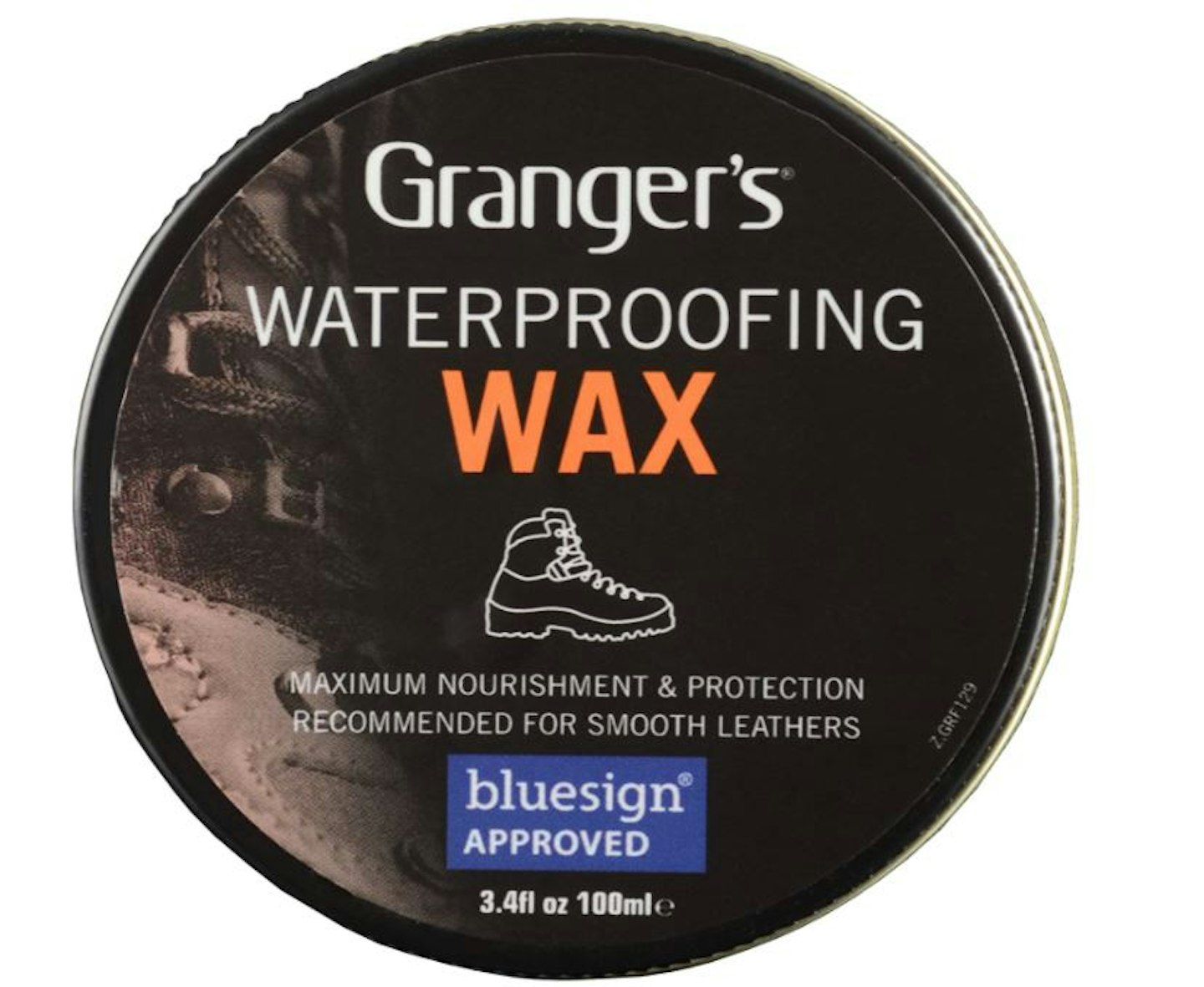
A paste that uses beeswax to protect leather. Easy to apply and very effective. This product is PFC-free and Bluesign-approved.
Recommended
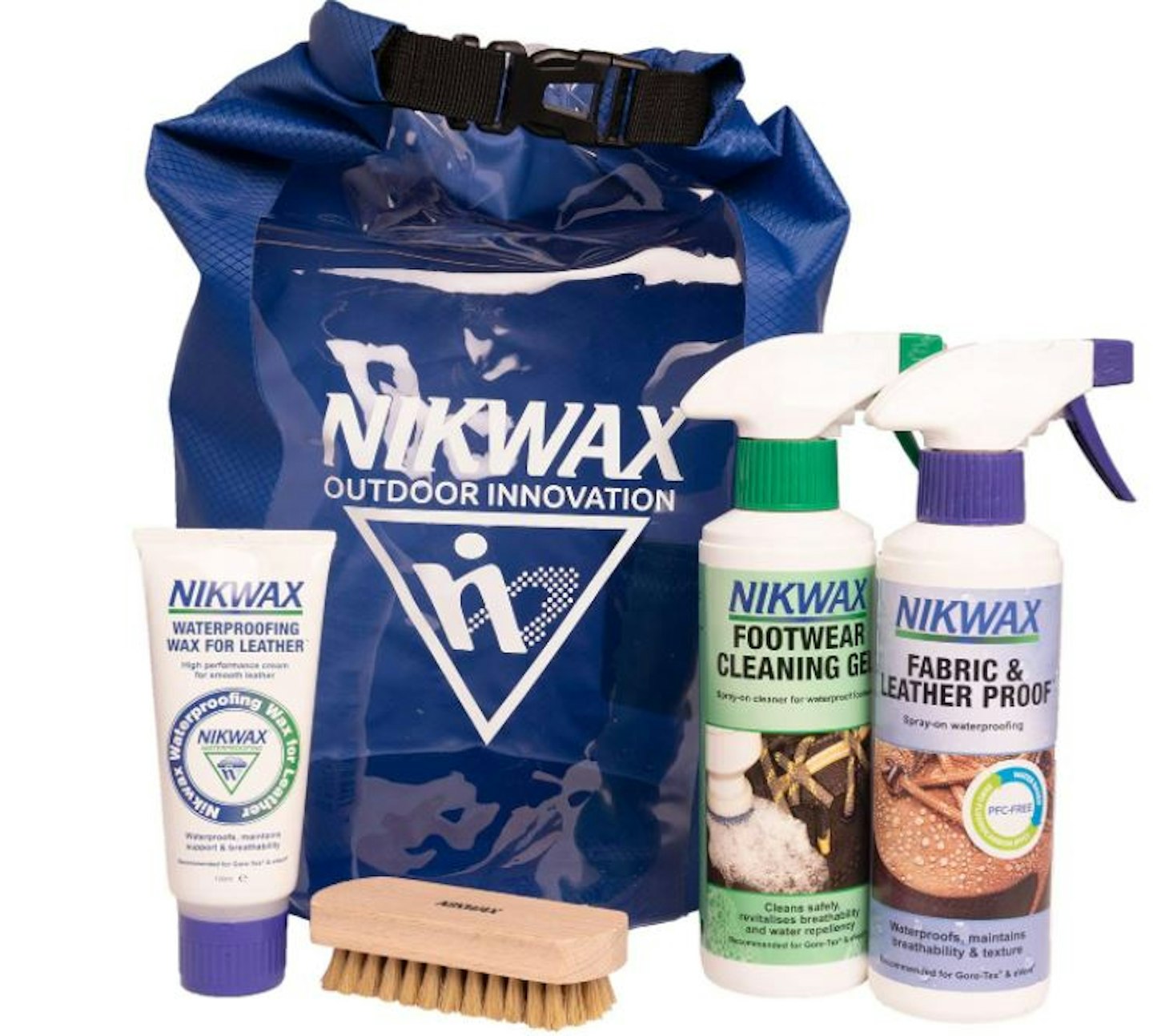 Amazon
AmazonNikwax is the other brand that you should use for cleaning and treating your outdoor gear. This handy kit includes footwear cleaning and proofing sprays, in addition to waterproofing wax and a brush. Like Grangers, Nikwax products are PFC-free.
About the author
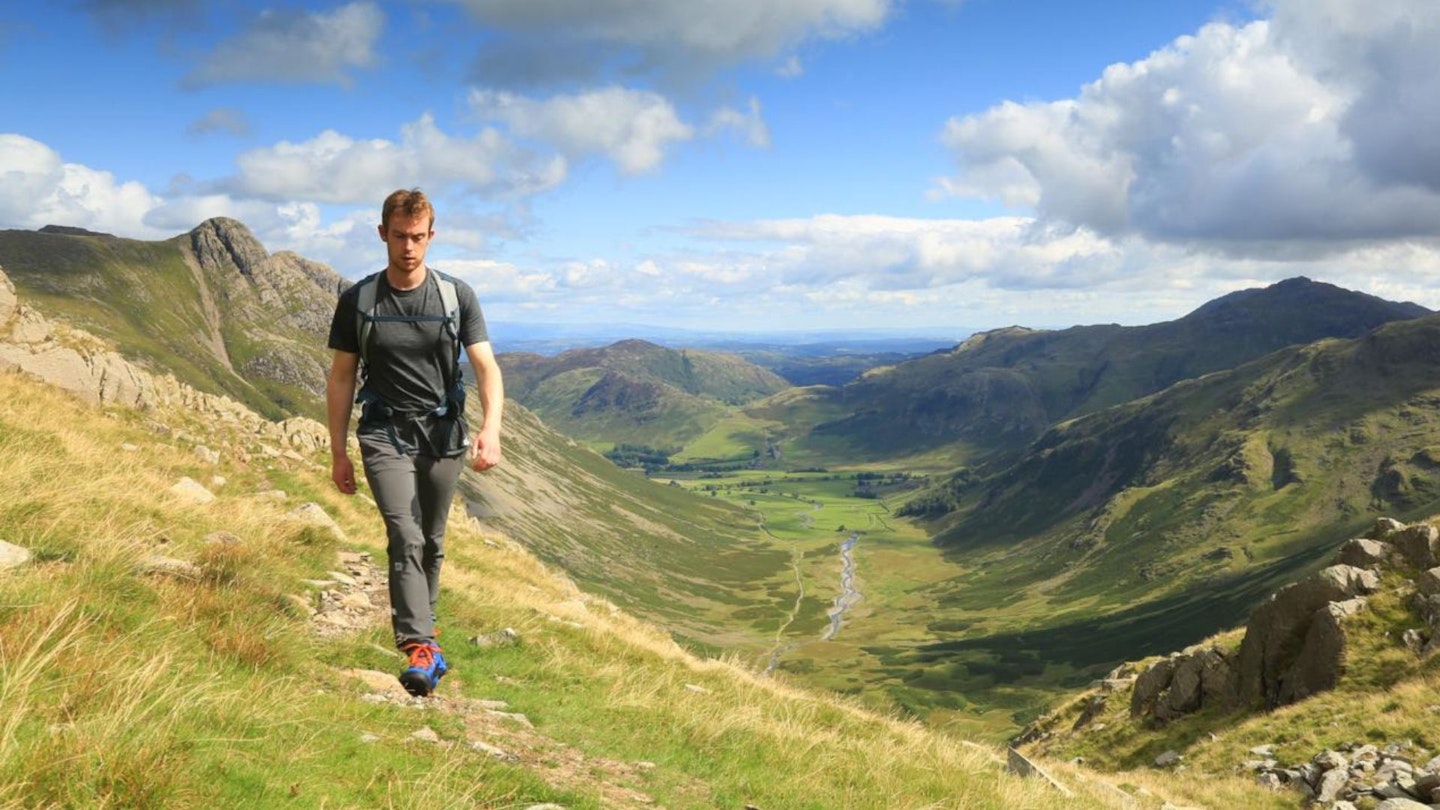
Chris Williams is LFTO's Senior Writer. He has worked both as a journalist in New Zealand and for outdoor gear brands and has extensive knowledge and experience using and testing outdoor and camping products. Chris has been working on Live For The Outdoors since 2021.

